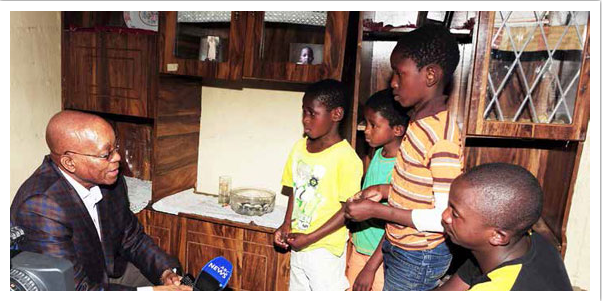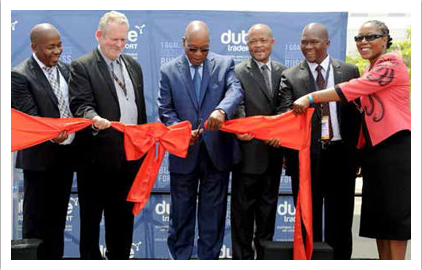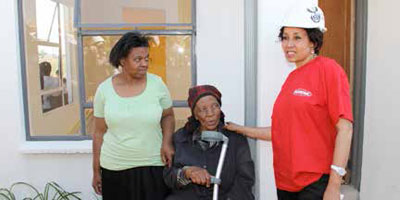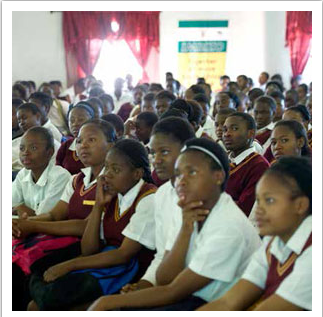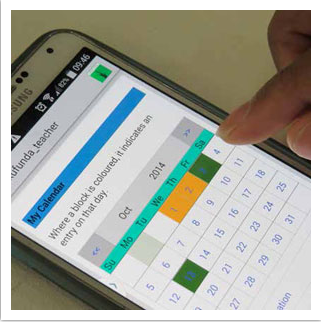Nov 2014
Nov 2014 sadmin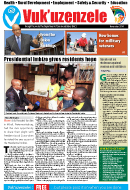
Presidential Imbizo gives residents hope
Presidential Imbizo gives residents hope sadminThree child-headed families in Mbali, Pietermaritzburg, had the rare opportunity to share their plight with President Jacob Zuma when he visited the area as part of the Presidential Imbizo.
The President said he was touched by an orphaned young man who has the responsibility of raising his three siblings, while studying.
“… Thulebone [Maphumulo] is the eldest in his family. He is trying to study… he is trying to work, and to hold his family together,” said the President, speaking at the imbizo held at the Durban University of Technology, Indumiso Campus.
Maphumulo, who lives in an RDP house in Mbali 2 in Pietermaritzburg with his three siblings, said he did not expect the President to visit his home.
The 21-year-old said he was nervous when the President Zuma walked into his yard.
“The condition we live in at home is not good. I am the eldest at home and I am taking care of my three siblings, aged 12, 10 and seven years old. They are schooling and I am also a student at a FET College,” he said.
“We do not have any income. My siblings do not receive social grants. We receive donations and support from our neighbours most of the time, but sometimes I get part time jobs on weekends to make sure that we survive,” he added.
Maphumulo is studying towards a Human Resource Diploma, but has a passion for BCom. Accounting as he wants to become a chartered accountant one day.
“I started my course in June this year and I have applied for National Student Financial Aid Scheme (NSFAS) loan. I should be completing the course next year in December,” he said.
President Zuma said government would adopt Maphumulo’s family, so that he could study the course of his choice in 2015, while social workers took care of his three siblings.
“I can’t find words that can best describe my gratitude for President Zuma’s intervention, I truly appreciate it,” he added.
More than 10 Ministers who attended the Presidential imbizo, which is the first under the new administration, also visited households in different wards across Pietermaritzburg, before discussions with residents.
President Zuma, who addressed about 2 000 residents from across the town in a tent erected on the campus sports grounds, said government’s decision to hold an imbizo created a platform for leaders of the country to hear the problems of citizens.
“We cannot keep saying we are working whilst we do not know if people are getting services or not. We must have an imbizo with people so that we can hear what they have to ask and complain about,” said President Zuma.
During the imbizo residents shared their service delivery issues and the President said these would be taken to relevant departments and government would make sure that they are addressed.
He said his next visit to the area should only be about good news, as government would have dealt with many issues.
Eugenia Mbeje of Ashdown, in Pietermaritzburg, said she was happy to have President Jacob Zuma visit her town.
“I personally think that government has done a lot in our town. We have put a lot of problems behind us… we have received many services from government. Our councillors are really trying, but there is still more work that needs to be done,” said Mbeje.
The 64-year-old said various government departments usually visited her community on service delivery outreach programmes.
“A Home Affairs truck comes to our community to help people who have problems with their identity documents and birth certificates. Social workers are also assisting on many issues in my community,” she said.
Mbeje said although she was happy with government services so far, drug abuse and crime was still a concern for many in her community. She also said she would be happy if government refurbished sports facilities and halls in the town for the benefit of youth.
Speak out on violence against women and children
Speak out on violence against women and children sadminGovernment calls on all South Africans, especially men, to support the 16 Days of Activism for No Violence against Women and Children campaign, which runs from 25 November to 10 December.
Every year, during this time, government and civil society organisations work together to raise awareness about the impact of violence against women and children.
What can you do during the campaign?
- Wear a white ribbon during the 16-day period. A white ribbon is a symbol of peace and symbolises the commitment of the wearer to never commit or condone violence against women and children.
- Volunteer at a non-governmental organisation or community group that supports abused women and children.
- Donate to organisations working to end violence against women and children.
- Speak out against women and child abuse. Encourage silent female victims to talk about abuse and ensure that they get help. Report child abuse to the police and encourage children to report bully behaviour to school authorities.
- Men and boys are encouraged to talk about abuse and actively discourage abusive behaviour.
- Seek help if you are emotionally, physically or sexually abusive to your partner and/or children.
Where to get helpIf you are abused or you know someone who is abused you can call:
|
20 Years of fighting HIV/Aids
20 Years of fighting HIV/Aids sadminWhen the international community commemorates World AIDS Day on the 1 December, South Africa can reflect on the great strides it has made in fighting the disease.
Five years ago the country took a bold decision to revamp its HIV/ AIDS policies and by putting more people on antiretroviral (ARV) treatment.
This saw the life expectancy rate increase from 52,7 years in 2002 to 59,6 years in 2013. There are more than 2,4 million South Africans on antiretroviral treatment programme.
During his Budget Vote, Health Minister Aaron Motsoaledi announced that HIV positive people with a CD4 count of 500 would now be able to receive ARVs, laying a foundation to targets set out in the National Development Plan (NDP) of reaching of achieving universal access of ARVs for all HIV positive people by the year 2030.
He also said that for pregnant women the Department of Health would now follow option B+ of the World Health Organisation, which stipulates that every pregnant HIV positive woman goes on life long treatment regardless of their CD4 count status.
Currently, the HIV policy in the country states that pregnant women stay on treatment only while breast-feeding and stop after termination of breastfeeding if their CD4 count is 350.
This new policy will be implemented from January 2015.
The Department of Health has also administered the roll out of the fixed-dose combination dubbed the ‘single dose’ containing emtricitabine, efavirenz and tenofovir.
This helps reduce pill burden among HIV positive patients.
During World AIDS Day all nations come together to increase awareness about the disease as well as encourage each person to take responsibility of their health by practising safe sex and getting tested for HIV.
A healthy diet leads to long life
A healthy diet leads to long life sadminWith non-communicable diseases such as diabetes, hypertension, heart disease, and cancer becoming global problems, South Africans need to be more aware of what they eat.
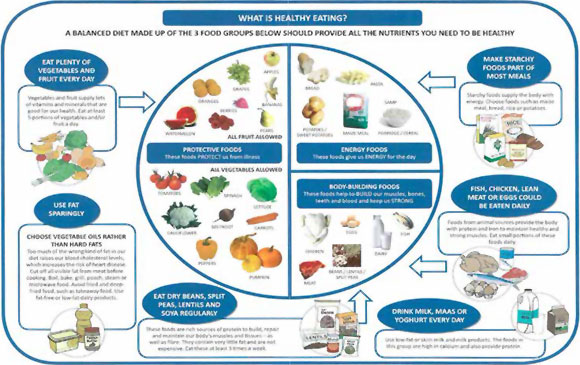 Eersterust Community Health Centre Chief Dietician Erika Spaumer, who specialises in nutrition therapy, recommends eating fresh fruits and vegetables combined with regular exercise as part of a healthy diet.
Eersterust Community Health Centre Chief Dietician Erika Spaumer, who specialises in nutrition therapy, recommends eating fresh fruits and vegetables combined with regular exercise as part of a healthy diet.
“I counsel patients on how to eat healthy within their budget. We plan what products can be bought in bulks, such as rice, pap, and pasta to save money. I do not recommend processed foods because it is more expensive and unhealthy.
“Canned products, food that is already chopped and packaged, are examples of processed foods. Rather buy fresh vegetables and then prepare them yourself. I also encourage patients to do vegetable gardening,” she said.
Every family should have meat-free days once a week, when they eat lentils, beans, or soy products as a substitute, which is more healthy and affordable.
How to prepare food
Spaumer recommends that food be steamed, boiled, or grilled as opposed to frying.
“When there is a need to fry food, rather brush the bottom of the pot with oil this helps in controlling the amount of oil used.”
She warns against deep frying food because when oil is heated it changes structure.
“All vegetable oils are good but as soon as you heat the oil it changes structure and becomes a bad fat. Processed foods are made with saturated fat – the white hard fat that clogs your arteries in your body which can lead to high cholesterol.”
Irregular meals
The biggest food related problem in the community that Spaumer works in is irregular meals.
“When you don’t eat regularly, your body gets a large amount of food at the same time. You do not use all the energy of the food and it gets converted into fat. Patients also tend to struggle to control food portions.”
She advises using the plate model of having starch that is a fist size when having the main meal of the day, coupled with vegetables and a palm size protein such as fish or chicken.
Snacking
Eating small snacks in between meals is just as important.
“Good snacks are fresh fruits, low-fat yoghurt or milk. We recommend that all people should eat at least three portions a day of yoghurt or milk. Other snacks can be popcorn, vegetable sticks, unsalted nuts and dried fruits, all in small amounts,” said Spaumer.
Eating healthy
Breakfast is the most important meal of the day and should include foods that are high in fibre such as oats or whole wheat bread with milk and a fruit.
A good lunch can be a whole wheat bread sandwich with no margarine with a salad as well as protein like cheese or meat and a fruit.
For dinner she recommends meat with vegetables or a salad because the metabolism slows down when sleeping which limits food digestion.
Spaumer says South Africans should stay away from processed foods such as polony, salami and soups found in sachets, which are high in salts.
This also includes deep fried foods and sugar sweetened beverages that have between six to eight teaspoons of sugar.
What you should know about diabetesNovember 14th is World Diabetes Day, which is aimed at creating awareness and educating the public about diabetes because a large number of people still remain undiagnosed with the disease. According to the World Health Organisation there are about 347 million people across the world that have diabetes. What is diabetes?Diabetes is a condition where a person has high blood sugar or glucose level. It develops when the body doesn’t produce enough insulin. Without insulin the body cannot get the energy it needs from food. Normally, a gland called the pancreas makes insulin, which carries the sugar in the blood into the cells. With diabetes, the pancreas fails to supply enough insulin, or the insulin doesn’t work properly. Types of diabetesThere are two major types of diabetes: Type I, commonly called juvenile diabetes, and Type II, commonly called adult on-set diabetes. Both have similar symptoms but very different causes. Type I diabetes, usually diagnosed in childhood, is a disease where the body’s own immune system attacks and kills the cells in the pancreas which produce insulin. This leaves the body without insulin, and unable to regulate its blood sugar levels. Type II diabetes is a disease that results when the body’s cells become resistant to insulin. In Type II diabetes, unlike in Type I, insulin is still produced by the body but it isn't used appropriately. SymptomsSymptoms of diabetes include:
Who can get diabetes?Anyone can get diabetes. Being overweight and having a family history of diabetes increases the risk. Depending on the type and severity of the diabetes it can be treated with diet plus exercise or with diet, exercise and medication. Medication may be insulin injections, tablets, or both. The good news is that having diabetes does not mean the end of a normal healthy life. You need to accept that you have the condition and then learn how to manage it. Management and control of blood sugar is very important as it prevents or reduces the risk of developing the complications of the disease. The abnormally high blood sugar levels (hyperglycemia) can cause kidney, eye, heart, blood vessel, and other diseases. Without proper management it can lead to heart and kidney disease, blindness and amputation. A healthy diet is the foundation for good blood sugar control in any type of diabetes, even without medication in some cases. Whether you are being treated with insulin injections or tablets, you still need to follow a sensible diet. Regular exercise of between three and four times a week for 20-50 minutes is necessary for good health. This includes:
Source: KwaZulu-Natal Health Department |
A new business gateway for KZN
A new business gateway for KZN sadminThe Dube TradePort in Durban is now officially an Industrial Development Zone (IDZ).
It joins three other similar economic zones spread out across the country.
President Jacob Zuma handed over an IDZ operator licence to the Dube Trade- Port Corporation signalling a new beginning for the precinct, which has already attracted investments worth nearly R1billion since it was opened in 2012.
“This is another step forward in our work towards creating more jobs that would alleviate poverty amongst our people,” President Zuma said at the ceremony at King Shaka International Airport.
The Dube TradePort IDZ is the latest in the nationwide rollout of special economic zones aimed at growing the country’s economy to meet the target of five per cent growth by 2019.
As the first IDZ for Durban, the Dube Trade- Port IDZ joins a list of other similar projects, which have attracted a combined investment of over R5 billion in Port Elizabeth, East London and Richards Bay.
According to Department of Trade and Industry Director-General Lionel October, more special economic zones will be rolled out across the country as government intensifies its approach to industrialise South Africa’s economy as demanded by the National Development Plan (NDP).
The Dube TradePort IDZ is set to transform Kwazulu-Natal into both a key business gateway and a noteworthy player in the global supply chain of goods. Two investment areas - the Dube TradeZone and Dube AgriZone - will be crucial to the success of the IDZ.
The main sectors that have been identified include electronics manufacturing and assembly, aerospace and aviation-linked manufacturing, agriculture and agro processing, medical and pharmaceutical production as well as clothing and textiles.
President Zuma said the Dube TradePort would create more than 150 000 jobs by 2060, the same year the development is envisaged to contribute R5,6 billion to the country’s GDP.
“The Dube TradePort is yet another good story to tell. We are determined to create an environment that is investor friendly. We will continue to improve support measures both through the special economic zones and other development tool,” he added.
Trade and Industry Minister Rob Davies said the concept of special economic zones had, in South Africa and in many other parts of the world, proved to be useful tools to promote industrial development and diversification of the economy.
“These are the industries that are largely supporting our export markets and are located in ports and around airports. In the life of the last administration we looked critically in what we can achieve from the special economic zones programme. The three active IDZs (Port Elizabeth, East London and Richards Bay) have now attracted investment worth R5 billion in total so the strategy is working,” Minister Davies said.
He said government was in the process of setting up a Special Economic Zones Board, which would advise the Minister on the implementation and proclamation of special economic zones.
President Zuma said the people of Kwa-Zulu-Natal would judge the success of the new development by the manner in which it changes their lives through job creation.
A new home for military veteran
A new home for military veteran sadminNonceba Lubenga, 87, could not contain her excitement or find words to express her gratitude when she was named one of the first beneficiaries of the government campaign to build over 5 000 houses for military veterans.
Lubenga, who was one of the first three military veterans identified on the Gauteng database, said she was happy that government has decided to honour their contribution to the country’s liberation.
She was also confident that the gesture would give hope to others like her, who have been waiting in the wings.
"I am glad that government is making an effort to correct the injustices of the past because at least now I will have a decent place to call home," said the former member of the underground movement, Umkhonto we Sizwe. Lubenga left for Lusaka, Zambia, in October 1971 and came back to the country in 1991. She currently lives with her grandchildren in Yeoville and has never owned a house in her life. But this month, she will officially move into her two-bedroom home in Fleurhof Estate, which boasts modern amenities.
Fleurhof Estate is a mixed-income housing development nestled along Main Reef Road, 13km west of the Johannesburg Central Business District.
The estate forms part of government’s drive to promote urban regeneration. Upon completion, the development project will feature just over 9 000 housing units.
According to the City of Joburg, one-third of the development will be RDP units, while the final third will comprise bonded houses. It will also house mixed-use business centre sites, industrial sites, crèches, places of worship, community facilities, schools and public open spaces.
Human Settlements Minister Lindiwe Sisulu kick started the campaign, which coincided with the annual Media Build observed under the theme ‘Restoring the dignity of military veterans through human settlements’.
Media Build saw Minister Sisulu, media personalities, stakeholders and sponsors from the private sector rolling up their sleeves to build and paint the three houses for the military veterans.
Minister Sisulu said her department has set a target of building 5 000 in all nine provinces in three years.
“We want to build them decent houses to restore their dignity and to honour their contribution to our freedom. This is a national priority,” said the Minister.
She urged the people of Fleurhof and other communities, where the military veterans will be based, to take care of them.
“These people gave up their lives to fight for freedom so it is important that we treasure them and treat them with dignity.”
Among the sponsors joining Minister Sisulu were Calgro M3, First National Bank and Kansai Plascon, the Department of Military Veterans and the City of Joburg.
| For more information, call the Human Settlement call centre: 0800 146 873 Department of Military Veterans call centre: 080 232 3244 |
Basic education gets it right
Basic education gets it right sadminProgress in achieving the Millennium Development Goals, feeding close to 10 million schoolchildren and replacing inappropriate infrastructure are some of the highlights of the Department of Basic Education in the first quarter of the fifth administration.
Speaking at the Social Protection, Community and Human Development Cluster media briefing, Minister of Basic Education Angie Motshekga said the achievements were a result of partnerships between government, various sectors and citizens.
“The achievements we have recorded have been the result of various sectors and citizens working with government, playing their part for a better South Africa. We look forward to working with our social partners in the country and beyond to move South Africa forward,” she said.
Achieving the Millennium Development Goals (MDGs)
Minister Motshekga said the country was on track to achieve the Millennium Development Goals (MDGs) related to literacy and Early Childhood Development (ECD).
“This includes achieving universal primary education with a focus on both access and completion of primary education as well as gender.”
MDGs are eight targets that all the member states of the United Nations have agreed to achieve by the year 2015. Among some of the goals is halving the number of undernourished people, reducing illiteracy by 50 per cent, achieving universal primary education, and promoting gender equality.
The Minister also highlighted that over 150 million textbooks have been distributed across the country.
“We are also pleased to report that extensive programmes were implemented to improve access to learning and teaching support materials with over 150 million textbooks and workbooks now in the hands of learners.”
National School Nutrition Programme
The National School Nutrition Programme, which aims to decrease inequalities in access to education, caters for 9,2 million school children.
“Interventions to mitigate inequities in access to education include the National School Nutrition Programme that now caters for around 9,2 million school-going children.
“In addition, scholar transport and no fee schooling has provided to 78 per cent of learners (over eight million learners) in about 81 per cent of public schools (over 20 000 schools) which do not charge fees.”
Improving school infrastructure
The department has also made progress in replacing inappropriate structures that did not have sanitation and any form of electricity.
“About 12 school structures were completed to replace inappropriate structures, 33 schools provided with sanitation and 22 schools provided with electrification.”
School Governing Body elections
Three months from now, schools across the country will hold elections for School Governing Bodies (SGB).
“Preparations for these elections are already at an advanced stage. For the first time, the provinces are ahead with preparations. This demonstrates the maturing of the sector in applying business processes,” the Minister said.
She called on parents to support the election and participate in choosing the governing bodies to help run the schools effectively.
“Government encourages all parents to support the SGB elections by standing as candidates or by participating as voters because without parental and community support, education can never be a societal issue as envisaged by government.”
Other achievements by the department include the launch of a Thutong Portal which is accessible on: www.thutong.doe.gov.za for Home Based Education, a book flood campaign, teacher resource centres and pilot project on Incremental Introduction of African Languages.
Beware when crossing a railway line
Beware when crossing a railway line sadminGovernment has urged pedestrians and motorists to follow safety precautions at level crossings to avoid serious accidents and deaths.
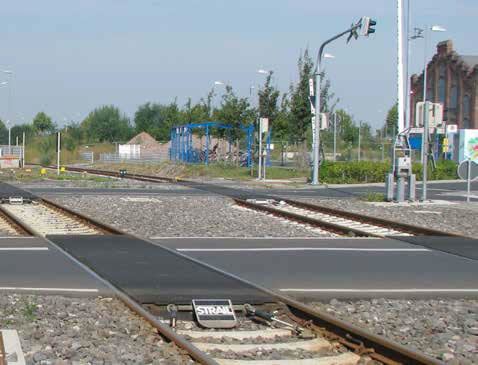 “We have noted the incidents at level crossings are at a high level and can lead to fatalities. The main reason for these incidents is that motorists and pedestrians fail to adhere to safety precautions,” said Transport Minister Dipuo Peters.
“We have noted the incidents at level crossings are at a high level and can lead to fatalities. The main reason for these incidents is that motorists and pedestrians fail to adhere to safety precautions,” said Transport Minister Dipuo Peters.
She also noted that during off-peak periods, the frequency of trains was low, leading people to disregard and neglect rail rules.
Speaking to the community of Kayamnadi in Stellenbosch, she urged pedestrians to use designated places to cross the railway.
Statistics show that since 2008, 21 people have been struck by trains in the vicinity of Du Toit station.
She added that government would work with provinces, municipalities, the Passenger Rail Agency of South Africa and Railway Safety Regulator to ensure that there was safety and compliance at all level crossings across the country.
“We will make sure that there are fewer vehicles and people who are crossing the railway tracks because we do not need unnecessary incidents,” said the Minister.
Level crossing safety tips
When walking:
- Cross railroad tracks only at designated pedestrian or roadway crossings and obey all warning signs and signals.
- Always stop, look both ways, and listen for trains before crossing the tracks.
When driving:
- Look both ways and listen for a train when you cross railroad tracks. Always obey all traffic signs and signals.
- Wait at least five metres behind the stop line when waiting for a train to pass.
- It is illegal and dangerous to stop your vehicle on railway tracks. Violators will be fined. If your vehicle stalls on the tracks, get out immediately and move quickly away from the tracks. Call the police for assistance.
- Never drive around lowered gates – it’s unlawful and deadly.
When using a bike:
- Never cycleon railroad tracks.
- Look both ways and listen before crossing tracks.
- Look for flashing headlights and listen for warning bells and horns.
- Cross tracks at an angle to avoid tyre damage or risk of falling.
Fast facts
- Train drivers are obliged to sound sirens on approach to level crossings.
- Trains operate with their head-lights on as an additional safety measure.
- Trains legally have right of way at road/rail level crossing intersections.
- A full train will take up to 500 metres to stop under emergency conditions.
- Where level crossings are protected by lights and barriers, the lights will start flashing 30 seconds before an approaching train enters the level crossing intersection.
- Barriers drop 10 seconds before the train enters the intersection and remain closed until the last carriage safely clears the intersection. Lights continue to flash until the barrier lifts.
Bringing justice closer to the people
Bringing justice closer to the people sadmin The new Sexual Offences Court in Bethlehem, Free State, will go a long way in providing muchneeded protection to survivors of sexual crimes in the area.
The new Sexual Offences Court in Bethlehem, Free State, will go a long way in providing muchneeded protection to survivors of sexual crimes in the area.
The new court will also help boost the community’s confidence in the criminal justice processes.
The dedicated Sexual Offences Court - located at the Bethlehem Magistrate’s Court - was opened by Minister of Justice and Correctional Services Michael Masutha recently.
Community members hope the court will help victims, who are often have to deal with long delays before cases are finalised.
Petronela Mekoa, 43, said the real trauma for rape survivors was enduring lengthy court process.
She shared her experience of supporting a rape survivor through normal court proceedings.
“It was very difficult to testify even for her as an adult. There were males in the courtroom - from the magistrate, the policemen… and having to relive the incident in such an environment was embarrassing for the victim,” said Mekoa.
Her hope is that the dedicated court would reduce trauma for victims, and make them feel more protected.
Thabiso Mofokeng, 28, said the court should be adequately staffed and sustainable to make a significant impact on the levels of violence against women in the area.
“I hope it will make a difference, taking into account the number of convictions of rapes we hear of in the area. I also hope it will improve the skills of court personnel, which has contributed to the efficient prosecution and adjudication of some cases,” he said.
Another community member, Mimiki Mphuthu, 37, said the court would ensure that perpetrators were put behind bars.
Bursaries: Paediatric Post-basic Nursing
Bursaries: Paediatric Post-basic Nursing sadminNelson Mandela Children’s Hospital Trust is offering Bursaries for Paediatric Post-basic Nursing Training in 2015
The Nelson Mandela Children’s Hospital is a legacy project of the Nelson Mandela Children’s Hospital Trust (NMCHT). The Trust is building a new children’s hospital in Johannesburg that will open its doors in mid-2016. This 200-bed quaternary care facility will be a state-of-the-art specialist paediatric academic referral hospital providing child-centered best quality surgical services to children of Southern Africa, irrespective of their social and economic status. In anticipation of the opening of the hospital in 2016, and with funding support received from the National Skills Fund (NSF), the Trust embarked on a skills development project that will see 382 nurses receiving specialist paediatric nurse training at postgraduate level over the next three years.
It is against this background that the Trust is now offering bursaries to South Africanregistered nurses wishing to specialise in paediatric nursing diplomas or short courses at postgraduate level in 2015.
The bursaries are available for both short (credit-bearing) courses and for postgraduate Nursing Training diplomas (1 or 2 years) at recognised and accredited South African universities.
The Trust is keen to hear from all postgraduate Nursing students interested in specialising in Paediatric Nursing, who are planning to further their studies in 2015 and who are self-funded. If you are a Registered Nurse with at least 2 years’ applicable experience and are in excellent health and you want to focus on one of the following areas of paediatric specialities:
- Neonatal Nursing
- Child Nursing
- Oncology Nursing
- Nephrology Nursing
- Intensive Care Nursing
- Operating Theatre Nursing
You are requested to carefully read our Bursary Agreement and our Administrative Requirements before completing the online application form (hard copies are also available on request) and more specifically, to note the post-study obligation to come and work back time equal to your period of studies at the Nelson Mandela Children’s Hospital (in Johannesburg) when it opens its doors in mid-2016.
To assist with administrative efficiency, all bursary applications should ideally come through our website: www.nelsonmandelachildrenshospital.org You may also request application forms from Shaun at 087 150 2101 during office hours. Preference will be given to applicants from all designated groups and where possible, people with physical disabilities. Copies of CVs, qualifications and 3 work references will also be required and will be subject to third party scrutiny.
Bursary Application Closing Date: 15 November 2014
Please note that no further correspondence will take place until the Trust has determined which applicants have been shortlisted for interviews. Should you not have heard from the Trust within 2 weeks of submitting your bursary application, consider your application unsuccessful. The Trust reserves the right to NOT make any bursary awards. Bursary applicants who have been interviewed and to whom the Trust wishes to grant bursaries should note that they will also have to be accepted by the participating academic institutions.
Central database for public service disciplinary cases
Central database for public service disciplinary cases Estelle GreeffGovernment has established a central database of disciplinary cases in the public service to speed up the resolution of these cases.
Speaking during the Governance and Administration Cluster briefing held in Pretoria recently, Minister of Public Service and Administration (DPSA) Collins Chabane said previously there was no central database where cases were managed.
Minister Chabane said DPSA was faced with cases where employees have been suspended for long periods without their cases being resolved.
To address this, DPSA started the process of building a database to collect information about all disciplinary cases, which lie in various provinces and departments.
In future, all cases in all spheres of government will be registered so that DPSA will be able to monitor their life cycle - who has been fired, who has been suspended and who has received a warning - on the system.
Added to this, Cabinet has approved the establishment of a pool of human resources practitioners and legal experts from various departments to assist in dealing with the backlog of cases.
The specialists are state employees and there will be no extra cost to the state in speedily resolving the outstanding cases.
The project will run for six months and will thereafter be reviewed.
DPSA has also developed sanctioning and precautionary suspension guidelines, which are to go before Cabinet for consideration.
The precautionary suspension guide is intended to ensure that employees are only suspended in appropriate circumstances.
| For more information, call the Batho Pele call centre: 0860 428 392 |
Classroom is just a click away
Classroom is just a click away sadminLearners will now be able to access educational resources any time, anywhere, using their mobile phones, thanks to the Ukufunda Virtual School which gives learners access to study groups and teachers.
Ukufunda, which means to learn in isiZulu, is a computer-generated school application developed by Mxit Reach, United Nations Children’s Fund (UNICEF) and the Department of Basic Education (DBE).
The app gives access to the Curriculum Assessment Policy Statements (CAPS) content for educators and developing Professional Learning Communities (PLCs) through the Ukufunda Teacher Corner aApp.
The app also has a calendar and Annual National Assessment (ANA) tool.
The ANA is the evaluation of Grade 3, 6 and 9 learners on their levels of literacy and numeracy.
When it comes to feedback of the ANA results conventional assessments can be costly, time-consuming and can take several months for results to be returned.
The ANA tool for Grade 9 learners on Ukufunda provides instant feedback and builds a database for the DBE to assess levels of competency quickly and effectively.
The learner section of Ukufunda includes:
- My Calendar – which notifies learners on tasks and events
- My Educational Resources – with inks to textbooks and reference material
- My Safety and Wellness – with links to counselling and emergency services
- My Groups - virtual communities of practice
The next phase of the Virtual School App will include a section for My Homework, assisting learners to complete homework assignments and My Mentor, a year-long mentorship that matches learners with other working professionals or tertiary students.
The App offers opportunities to learn and work collaboratively, to form professional learning communities and providing educators an opportunity to continue their professional development even after school hours.
Deputy Minister of Basic Education Enver Surty highlighted the potential of the Ukufunda Virtual School App to help the department achieve its goals.
“We must recognise that we are now in the 21st century, a century of possibility. We cannot ignore the possibilities that are opened up to us through increased access to technology.
“We cannot escape the glaring inequality in our system and it is encouraging to see that through efforts such as this we can close that gap using technology,” he said. Mxit Reach is a public benefit organisation established to inspire and improve lives through the development of innovative and cost-effective mobile solutions.
To date Reach has helped over 2,5 million learners access educational apps on the Mxit platform.
Mxit is a mobile messaging and social network application that operates on more than 8 000 mobile phone handsets from low-end feature phones to high-end smart phones on tablets, laptops and desktop computers.
Department helps a disabled man
Department helps a disabled man sadminFor many years, 21-year-old Siyabonga Khumalo could not move around easily in his grandmother’s house and yard in Mndeni, Soweto. The four-roomed house in Mndeni (Soweto) was not wheelchair-friendly.
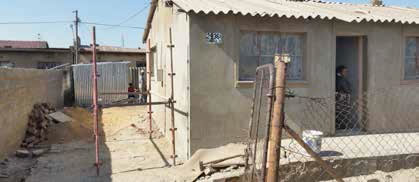 “It was very difficult for him to do anything because the yard was not suitable for a wheel chair and our stoep did not have a ramp,” says Siyabonga’s cousin, Makhosi Khumalo.
“It was very difficult for him to do anything because the yard was not suitable for a wheel chair and our stoep did not have a ramp,” says Siyabonga’s cousin, Makhosi Khumalo.
This has all changed thanks to a partnership between the departments of social development, health and GVK Siyazama Construction and Elliot Mobility. Siyabonga and his grandmother are staying in a newly renovated house and yard with ramps allowing for easy movement in and out of the house.
In a statement the Department of Social Development said the renovation would help Siyabonga to do things
he could not do before.
“The interventions will create an opportunity for Siyabonga to move independently and participate in all aspects within the community,” said the statement.
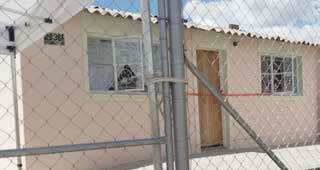 Makhosi says since the upgrade, Siyabonga is free and can move around without any problems. Siyabonga is one of many people with disability who government has helped and is planning to help.
Makhosi says since the upgrade, Siyabonga is free and can move around without any problems. Siyabonga is one of many people with disability who government has helped and is planning to help.
In his 2014 State of the Nation Address President Zuma committed the current administration to equitable outcomes for persons with disabilities. A month later it was announced that a Presidential Working Group on Disability is to be established.
The country will mark National Disability Rights Awareness Month between 3 November and 3 December and International Day of Persons with Disabilities every year.
The theme for 2014 is Celebrating 20 years of the rights of persons with disabilities in our Democracy! Together we move South Africa forward through radical socio-economic transformation.
Diepsloot gets a facelift
Diepsloot gets a facelift sadminJohannesburg Water and the Johannesburg Road Agency are jointly spending over R30 million to upgrade ageing infrastructure in Diepsloot.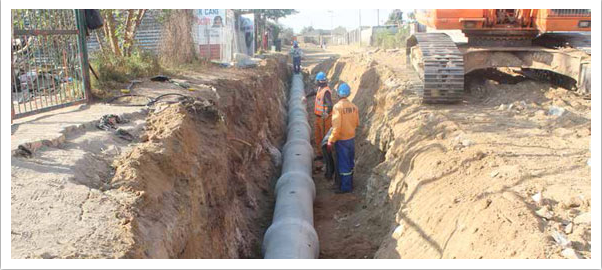
Driving on a gravel road will soon be a thing of the past once construction and upgrades of the ageing infrastructure in the Diepsloot, north of Johannesburg is complete.
The upgrade includes resurfacing of gravel roads, a stormwater drainage system and construction of a new bridge linking a new development site to the existing extensions three, four and five.
Johannesburg Water is spending R5,6 million on upgrading of the sewer, while the Johannesburg Road Agency is spending R25 million as part of the city’s resurfacing of gravel roads programme.
The upgrading of the sewer started in June this year and will be completed on 26 November later this year.
Johannesburg Water Civil Engineering Technologist Tshepo Mashigo says the growing population in the township was putting pressure on the current infrastructure.
“We are replacing the ageing infrastructure because it was not coping with the amount of sewerage coming from the township,” he added.
The old pipes were 300 mm in diameter and the new pipes will be 1 500 mm in diameter allowing more water to pass through.
The upgrading of the sewer in the township has assisted 13 Diepsloot residents who have been employed on the construction site. Out of the 13 people working on the site, six men and two women are from the local community. One of the community members employed on the site as a Community Liaison Officer Maggie Nyakela, who has lived in Diepsloot for seven years, says the construction of the site will empower her financially.
“I’m happy about the developments in my area and the jobs that have been created. It gives us a chance to put food on the table,” said Nyakela.
Another resident who has welcomed the upgrades in Diepsloot, is 23-year-old Peter Sithole who has been a resident since 2006.
“I’m very happy about these developments because we were struggling with the blocked sewer. Diepsloot is changing, our place will be like other developed townships,” said an elated Sithole.
On the other side of the sprawling township, graders and construction workers are hard at work on the different streets of Diepsloot where the Johannesburg Road Agency is resurfacing 10 streets.
The resurfacing of the streets started in July 2014 and will be completed by July 2015. More than 10 kilometres of gravel road will be upgraded and conversion of storm water drains.
Spokesperson for the Johannesburg Road Agency, Bertha Peter-Scheepers says the upgrades will help residents of Diepsloot in cases of emergencies when ambulances and police have to travel to attend to such cases.
“These upgrades will increase accessibility and bring some economic activities to Diepsloot,” said Peter-Scheepers.
Anna Masoga who relocated from Alexandra to Diepsloot over 25 years ago, is grateful to the City of Johannesburg. “I’m happy that the city is thinking about us. We will be safe and drive our cars on safe and better roads.”
For more information, call the Batho Pele call centre: 0860 428 392
EU bank to fund SA universities, businesses
EU bank to fund SA universities, businesses sadminThe European Investment Bank plans to fund small and medium enterprises and universities in South Africa to contribute to development.
 The bank’s head of regional representation in Southern Africa and the Indian Ocean, Carmelo Cocuzza, said these were among several investment opportunities that the European Union Bank was aiming for in the near future.
The bank’s head of regional representation in Southern Africa and the Indian Ocean, Carmelo Cocuzza, said these were among several investment opportunities that the European Union Bank was aiming for in the near future.
“We are now looking at funding educational projects, particularly in tertiary education. We are starting now to approach several universities … but we are yet to develop a funding programme.
“We are also talking to banks with a view of supporting small and medium enterprises financing in the private sector because there are many small projects which we cannot finance directly,” said Cocuzza, who was speaking at The European House- Ambrosetti (T H E - A ) Economic Summit.
The investment bank finances African projects that have synergy with European policies, including public-private partnerships.
Cocuzza said the research conducted by THE-A would help investors understand what opportunities await them in the manu f a c turing, energy and agriculture industries.
“I think it is important that investors get an overall perspective with the business climate of South Africa and that is what they are getting with the presence of government here at the summit,” he said.
Cocuzza added that the bank had sponsored several projects in South Africa, including injecting millions of Euros to bankroll Eskom’s concentrated solar power plant in Upington in the Northern Cape.
“We also supported government in its affordable housing programme through the big four local banks to improve the social housing conditions in South Africa.
“We are providing 150 million Euros and I believe over 400 houses to be built,” he said.
He said the cash injection was finalised last year.
Cocuzza also said that the bank funded several other South African projects, including sponsoring 80 million Euros for the construction of the R21 freeway project, amongst others.
He said the bank has invested over one billion Euros since 1994.
Farmworkers must know their rights
Farmworkers must know their rights sadminThe Land Rights Awareness campaign, launched by the Department of Rural Development and Land Reform aims to educate people living on commercial farms on land rights and security of tenure.
According to the department, farmworkers are protected by the Extension of Security of Tenure Act 62 of 1997.
This Act was introduced by government as part of its land reform programme to:
- Protect people who live on rural, or peri-urban land with the permission of the owner or person in charge of that land.
- Protect owners and people in charge of land by stating that occupiers have certain duties along with their rights.
- Stabilise and improve relations between owners and occupiers, by creating fair and clear law, and procedure for evictions.
- Create procedures for occupiers to get stronger independent land rights such as land ownership.
According to the Act, people staying on a farm can only be evicted once the owner has followed all the three procedures in the Act and has got a court order that allows for the eviction.
Steps to be followed for a lawful eviction include:
- Phase one: the fair and lawful termination of the occupiers right of residence.
- Phase two: getting an eviction order from the court.
- Phase three: implementing the eviction order.
If the owner evicts an occupier without following the correct procedures, the owner has committed a criminal offence and can be jailed for two years. The Act gives farmworkers or occupiers certain rights including the right to:
- Receive visitors.
- Receive post or any other form of communication.
- Not be denied access to water, education, and health services. These rights do not mean that the owner must provide the services.
Part of the campaign also includes the establishment of the Land Rights Management Facility. The Land Rights Management Facility has three main components.
The first two components deal with legal representation and mediation services while the third is the call centre.
The call centre is designed to increase access to departmental services and for people to report any land rights violation, particularly illegal evictions. The call centre operates in all 11 official languages from Monday to Friday. It opens from 07h30 in the morning till 16h30 in the afternoon.
| For more information contact the call centre on 0800 007 095 or go to www.ruraldevelopment.gov.za |
From the Union Buildings - a message from the President
From the Union Buildings - a message from the President Estelle Greeff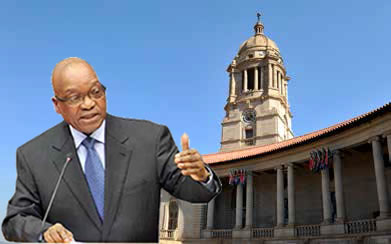 Protecting the rights of people with disabilities
Protecting the rights of people with disabilities
November is a month in which our nation focuses its attention on close to three million South Africans whose status and wellbeing in our society tell us how humane we are as a people and how we are doing in achieving equality for all.
Some of the people to whom I refer are visual artists and musicians; some are engineers, others, chief executives of major companies or owners of small businesses; some are international sports stars and others, while others are teachers, doctors and members of national, provincial or local government.
But, some of these South Africans can also be seen outside shops or at traffic intersections begging or scrounging around for scraps of food, clothes or ways to keep warm. Others are locked up in their homes by family or friends, while others are physically and emotionally abused because they have little or no way to defend themselves.
I speak here of South Africans with disabilities. Census 2011 put the number of South Africans with disabilities at at least 2,8 million (or 7,5% of our population at that time), excluding children under the age of five or persons with psychosocial and certain neurological disabilities.
During our 20 Years of Freedom, November has been adopted as a month during which government intensifies the promotion of the rights of people with disabilities and during which we challenge all South Africans to think of the work we still need to do to create a better life for people with disabilities.
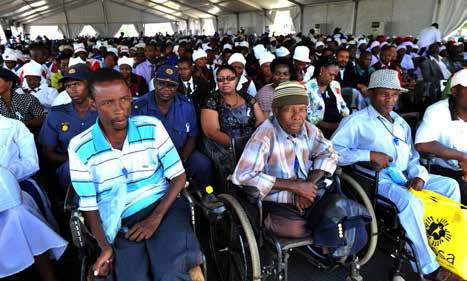 People with disabilities face unique challenges in their own lives in communities but with the necessary material and social support – and adherence to our Constitution’s insistence on equality for all – they can be empowered to contribute to and lead our society.
People with disabilities face unique challenges in their own lives in communities but with the necessary material and social support – and adherence to our Constitution’s insistence on equality for all – they can be empowered to contribute to and lead our society.
We can as South Africans pride ourselves on the progress we have seen in the lives of people with disabilities, from all social backgrounds, since the inception of our rights-based democracy.
South Africa is proud to be a signatory to the United Nations Convention on the Rights of Persons with Disabilities, an international agreement that says governments must promote and protect the rights of persons with disabilities.
Our commitment goes beyond our signature on this international treaty. Our commitment can be seen in government’s provision of disability grants, or our provision of learning facilities for children and adults with special educational needs.
Our commitment can be seen in the targets we have within government for employing people with disabilities, or the infrastructure and services our country has developed for people with disability.
These include features such as wheelchair ramps at public buildings, buses that “kneel”, free cataract removal for citizens across our country who depend on the public health system for such services, and the provision of assistive devices such as spectacles or hearing aids.
It is against this background that, earlier this year, I declared 2014/15 as the Year of People with Disabilities under the theme “Protecting and Promoting the human rights of people with disabilities”: Towards full participation and inclusion”.
 November is therefore a month in which we celebrate the contribution of people with disabilities to our society and in which we reevaluate the support we provide to people with disabilities.
November is therefore a month in which we celebrate the contribution of people with disabilities to our society and in which we reevaluate the support we provide to people with disabilities.
For some South Africans, this should also be a month where we frown on any form of discrimination against or disadvantaging people with disabilities and do all of us a disservice and injustice in the process.
This is also a month in which we commemorate 16 Days of Activism for No Violence Against Women and Children as part of government’s broader campaign to support vulnerable groups and individuals.
The 16 Days campaign, which is part of an international focus on violence and abuse, allows us to focus for a few weeks on a task all of us need to perform 365 days a year, and that is to protect vulnerable people in our communities.
Indeed, the violence and abuse we experience in our society is one of the contributors to the prevalence of disability in our communities. When people are hurt or maimed in the course of such abuse, this creates trauma in the individual and those close to her or him.
It undermines (even if this is just temporarily) their ability to be confident, productive members of our communities and it diverts our energies and funds to situations we should be living without.
Year after year, when we see our national crime statistics, the numbers tell us that most of our serious violent crimes happen in situations where perpetrators and victims know one another.
People’s failure or inability to relate to each other decently, or recklessness in the use of alcohol, and some men’s attitudes towards women as “property” that “belong” to such men, are among some of the factors in our society that lead to tragedy, trauma, disfigurement, loss of earnings and increased insurance premiums in our communities.
This is not how we should be living as South Africans, and we should all become part of the national movement for a better life.
We are blessed as a nation with individuals and organisations in all parts of our country and across all sectors who want to make South Africa an even better place in which to live.
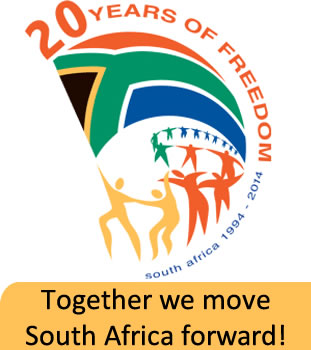 And so, November is also a month in which we celebrate and welcome the partnerships that are in place between government and its social partners to promote and defend the rights of vulnerable South Africans.
And so, November is also a month in which we celebrate and welcome the partnerships that are in place between government and its social partners to promote and defend the rights of vulnerable South Africans.
Government appreciates the work being done by thousands of community-based organisations to support vulnerable members of our communities. This work is not just about raising funds and providing facilities, but this work goes to heart of our values as South Africans.
This work challenges us to ask who we are as a people, what good we can perform for each other in the spirit of Ubuntu and how we are reaching out to those who need our support the most.
So, this is work that starts in our beliefs, values, thoughts and actions as individuals. It is only when we are (or at least try to be) the best we can be, that our families, communities and country at large will change for the better.
It is my hope that November 2014 can be a new beginning for millions of South Africans; that it will be a time when all of us will think not just of the campaign of the month, but the campaign of our lives: a personal campaign to make a positive contribution to society.
A year from now, we should all be able to reflect on 365 days during which we actively reached out to those who need our help and support, or during which we reached out for help when we thought that we were “losing it”, going over the edge or about to do something dangerous, harmful or unlawful.
Let’s make November a month of positive change for our nation and the start of a national effort where we concentrate on everything we can do to make ability a hallmark of our society.
Jacob Zuma
President of the Republic of South Africa
Gauteng moves to improve public transport
Gauteng moves to improve public transport sadminResidents of Gauteng can expect a fully integrated and developed Bus Rapid Transit (BRT) system in the next few years.
This is according to Roads and Transport MEC Ismail Vadi.
“Together with the municipalities, we have developed a set of interventions aimed at transforming public transport into an integrated, reliable, accessible, safe and affordable system.
“Over the next three to five years, the full development of an integrated bus rapid transit system across the three metropolitan municipalities in our province will become visible,” he said.
Public transport use
The MEC said Rea Vaya and A re Yeng in Johannesburg and Tshwane respectively, already changing people’s perceptions of public transport.
“Work on a similar system in Ekurhuleni has already begun and we are examining the possibility of extending the system to the West Rand.
“The inclusion of the taxi industry in these processes and the Hlokomela campaign of the taxi associations will contribute to the integration of the public transport system across the Gauteng cityregion and improve the levels of safety on our roads,” MEC Vadi said.
He added the Gautrain was proof the province could deliver large-scale public transport infrastructure projects.
The Gautrain has an average daily ridership of 55 000 passengers and 21 000 passengers on its buses. It recently won the Global Air Rail Alliance Award for customer service excellence on its airport line.
A feasibility study on the further expansion of the Gautrain network is currently underway.
With regards to rail, the Passenger Rail Agency of South Africa (Prasa) has prioritised the revitalisation of Metrorail in Gauteng.
The acquisition of new rolling stock, the renovation of train stations and the development of a new signalling system will transform day-to-day travel.
Freight Sector
The National Development Plan (NDP) recognises that South Africa’s economy is a transport-intensive economy.
The provincial government’s five-year plan is to provide effective freight access to major decentralised freight terminals on the northern and eastern periphery of the urban core of the Gauteng city-region by:
- Decreasing the heavy freight vehicles numbers in core urban areas and central business districts.
- Providing adequate linkages outside the province.
- Supporting infrastructure to freight intermodal facilities.
- Aligning freight intermodal facilities with Transnet’s Container Strategy for Gauteng and Durban port developments.
Getting the basics right
Getting the basics right sadminCommunicating with the community, holding regular mayoral meetings, and listening to the concerns of residents are some of the factors that make the Steve Tshwete Local Municipality a successful one.
This is according to Steve Tshwete Local Municipality Mayor Mike Masina, who shared his success story with delegates at the Presidential Local Government Summit.
He explained that the municipality had to get the basics right and that is why it is among the best performing municipalities.
The municipality is situated in the Nkangala District of Mpumalanga Province and covers a geographic area of 3 993 km². It is made up of 29 wards with 64 971 households.
Since 2006, the municipality has won 15 awards. The awards include the 2012/13 Clean Audit Award, 2011/12 Clean Audit Award, 2010/11 Clean Audit Award, 2009/10 Mpumalanga Greenest Municipality Champions and 2009 South African Local Government Association Clean Audit Award.
Mayor Masina said the municipality had developed a clear communication strategy to keep residents informed about its plans and challenges.
“We have a good working relationship with local print and electronic media. I have a column in the Middleburg Observer, a local newspaper, where I inform the community about our plans, on a weekly basis,” he said.
According to Mayor Masina, communicating with residents lies at the centre of avoiding possible conflicts and service delivery protests.
“If you keep the residents informed about your plans, you are already addressing the possibility of them protesting because they know what is on the plans of the municipality.”
He added that the municipality has a radio slot on Middelburg FM where executives speak about programmes and challenges of the municipality, and receive feedback from residents.
Another communication platform used by the municipality is an SMS line. The line is used to inform residents about any urgent announcements, including power and water outages.
Mayor Masina said the municipality also held regular mayoral meetings, where each department reported on successes and challenges they experienced.
The Mayor also highlighted that at Steve Tshwete Local Municipality the roles and responsibilities of the role players and managers were clearly defined.
“What we got right is to define our roles and responsibilities for all political office bearers and our administrators.
“As the mayor, I have my roles and responsibilities clearly defined, so do the administrators and the Speaker. Everybody knows what they are expected to do.”
Mayor Masina believes that if other municipalities communicate with their residents, hire people with the right skills and qualifications, and if political office bearers stop interfering in the running of the municipality, local government would move in the right direction and make a difference in the lives of the residents.
Illegal electricity connections endanger lives
Illegal electricity connections endanger lives sadminIllegal electricity connections are claiming the lives of many South Africans and causing power outages throughout the country.
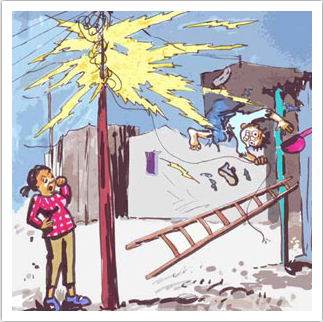 It is also costing Eskom millions in lost revenue.
It is also costing Eskom millions in lost revenue.
“Our main concerns are that illegal connections are dangerous and often result in serious injury or even death. It also causes overloading of the network, which results in unplanned outages, which affect the smooth operating of the traffic lights, as well as life sustaining equipment at hospitals,” said the power utility.
Eskom added that unplanned power outages affect the quality of electricity supply, which in turn affects investment and ultimately the economy of the country.
“Despite numerous educational sessions and the removal of dangerous wiring, illegal connections still continue to be a problem,” said Eskom, adding that it would continue with its educational drives.
The theft of electricity also adds to the energy crisis facing the country.
“To an extent it does put pressure on the energy crisis in the country in that those who are stealing electricity are robbing the utility of its potential revenue. Generally when you do not pay for something, you are inclined not to use that thing sparingly. The same can be said for those who are stealing electricity."
According to Eskom, illegal electricity connections are a serious problem affecting power utilities all over the world.
Eskom said it would continue working with communities to find a solution.
It has also warned about the dangers of repurposing gas or paraffin appliances to be powered by electricity, puting lives at risk. One of the most common ways of repurposing is converting a gas cooker into an electrical powered cooker.
“Converted cookers and heaters aren’t fitted with the correct electrical cabling and insulation, they have exposed cabling and aren’t wired correctly, meaning they can easily overheat or shock those using the appliances,” said Eskom’s Operational Manager Alex Stramrood.
“We encourage people to spend a little extra money on approved electrical appliances from reputable suppliers in order to reduce the risk of malfunction and the chance of fires, shocks and other injuries,” he added.
Report illegal electricity connections on: 0800 11 27 22
Incentive for black emerging filmmakers
Incentive for black emerging filmmakers sadminThe newly launched South African Emerging Black Filmmakers Incentive programme will give young black film makers a chance to produce more films, create jobs and contribute to the growth of the film industry.
The programme, launched by the Department of Trade and Industry (the dti), has been effective from 1 September 2014 and will run until March 2017.
The incentive will provide financial assistance to qualifying applicants in the form of a rebate of 50 per cent for the first R6 million of the Qualifying South African Production Expenditure (QSAPE) and 25 per cent thereafter for the remainder.
Minister of Trade and Industry Rob Davies said the new incentive would give support to emerging filmmakers who were previously not covered under the Film and Television Production and Co-Production Incentive programme.
“The film industry, through various engagements and consultations indicated that the previous scheme and threshold did not accommodate nor support emerging filmmakers.
“The dti has now reduced the threshold and upped the incentive in an effort to create many opportunities for people with low-budget productions for televisions and films. In this way more productions will be supported than ever before,” he said.
Minster Davies emphasised that South Africa’s film industry needs quality filmmakers to live up to its reputation of being a competitive driver of the economy.
In an effort to market the South African film industry, the department is planning to put together a trade mission to Hollywood in the near future to showcase what the South African film industry is capable of.
One of the aspirant black filmmakers who stand to benefit from the incentive is Uzanenkosi Mahlangu.
Mahlangu said the incentive would allow black artists and filmmakers to exercise their creativity without being told what to write or what not to write.
“The South African Emerging Black Filmmakers Incentive programme will change all of that. It might not persuade lawyers and economists to become filmmakers but it might stop some filmmakers from feeling like they need something to fall back on,” said Mahlangu.
He added that he was happy that department had launched this incentive scheme and was looking forward to making quality films and series.
For more information, contact the dti’s Customer Contact Centre: 0861 843 384
Jobs: Department of Justice & Constitutional Development
Jobs: Department of Justice & Constitutional Development sadminJobs advertised
Family Counsellor: Manager: Grade 1
Family Advocate; LP7 – LP8
Assistant Director: Supply Chain Management
Office Manager / Office of the DDG / Court Services
Assistant Director
Maintenance Officer; MR-1 – MR-5
Maintenance Officer; MR2-MR3
Estate Controllers EC1 (11 Posts)
Closing date: 10 November 2014
Jobs: National Prosecuting Service
Jobs: National Prosecuting Service sadminPosts advertised
Senior Public Prosecutor X2
Head Control Prosecutor 2 X4
Regional Court Control Prosecutor
District Court Control Prosecutor
Regional Court Prosecutor X4
Performance Information Management
Strategy Management
Closing date: 10 November 2014
Jobs: Road Traffic Management Corporation
Jobs: Road Traffic Management Corporation sadminJobs advertised
- Traffic Officers
- Traffic Trainees
Closing date for applications: 7 November 2014 at 13:00
Making South Africa safer
Making South Africa safer sadminMinister of Police Nkosinathi Nhleko has been working hard to ensure that South Africans feel safe.

Minister Nhleko recently officially opened a R68 million state-ofthe- art police station, Tembisa South Police Station, in Ekurhuleni, Gauteng, to give the fight against crime a boost.
He urged the community to work with the police to tackle crime.
“We all need to play a role in the fight against crime to ensure that our communities are safe and protected,” the Minister stressed.
He appealed to community members to report criminal activities and those involved in such acts.
“Criminals are in our communities and they must be exposed.”
Minister Nhleko encouraged the local residents to establish Community Policing Forums in their areas, saying such structures were important in the fight against crime.
Interaction
Minister Nhleko’s focus is also on changing the negative image that the public has of South African Police Service (SAPS).
This will be done through continuous interaction between the SAPS and communities around the country.
“You can only improve the image of the police if members of the community who are recipients of the service of the police are absolutely clear about them knowing the police service much better,” the Minister said.
Another aspect of improving interaction between the public and the police will be the launch of a front line service delivery programme.
“As a member of the community you should be treated with respect and dignity and also a service must be rendered.
“The question of being diligent on the side of the police is also going to be a focal point. We will run this as a project on how we can improve the image of the police,” he said.
Another top priority for Minister Nhleko is working on a recruitment strategy to attract young people, who have integrity, to SAPS.
“We have started rolling out a community based recruitment strategy. We are also saying to members of the community at a local level make an input to who should join the SAPS family,” the Minister said.
Recently members of the Hawks and Crime Intelligence arrested 23 SAPS officials from the Free State for charges related to defeating the ends of justice, theft, corruption, and money laundering.
“We will continue to deal with this [corruption]. This is a negative element and the key thing is how do we deal with it. The community recruitment is part of mitigating the process,” he added.
With the festive season upon us, Minister Nhleko said there needed to be better planning and coordination when combating violent crimes.
To deal with the rise in robberies that usually occurs over the holidays, the Minister intelligence- driven would be the focus of police.
Police intelligence would be beefed up to combat violent crime.
Written by Noluthando Mkhize
Making furniture with a difference
Making furniture with a difference sadminPetso Lesomo, owner of Lesomo Trading and Projects, is passionate about his furniture-making business, which is supported by the National Youth Development Agency.
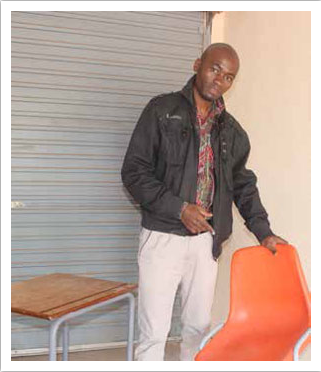 He supplies schools with office furniture, desks and chairs and also makes kitchen cupboards and wall units.
He supplies schools with office furniture, desks and chairs and also makes kitchen cupboards and wall units.
Growing up in Tlhabane West, Rustenburg, Lesomo always wanted to start a business that would make a difference in his community.
“Coming from such humble beginnings, I have been inspired to start my business and make a difference in my community by providing quality services to all,” said Lesomo.
He matriculated from Holy Family Combined School in 2006 and graduated in 2010 with a Business Management Diploma from Rosebank College in Pretoria. He lives with his parents and two younger siblings.
Between 2011 and 2012, he worked as an office administrator at a funeral parlour, where he met his mentor Cyprion Kgatlhanyane, who encouraged him to start his own business.
“In the beginning it was difficult but I was determined to make a success of it.”
He funded his business with his own savings but this put financial strain on him. He then decided to contact the National Youth Development Agency (NYDA) for help. The NYDA gave him a grant of R9 690.
Lesomo used this money to buy a machine that made the cutting of wood easier and decreased production. The NYDA also helped with a business plan and training on how to market his products. Lesomo registered his business in April 2012.
Lesomo said his business, although small, is growing and has allowed him to make a difference in his community.
“Coming from the townships and rural schools, I found that the desks and chairs are always breaking and dangerous for school children.”
 As a result, he decided to be innovative and make desks and chairs that are stronger and safer for the kids.
As a result, he decided to be innovative and make desks and chairs that are stronger and safer for the kids.
He markets his products through word of mouth and he also does presentations at the schools.
“I drive around with a bakkie and go to different schools to make presentations with examples of my products.”
Once potential buyers are satisfied with the presentation, they place an order and he starts work immediately. Lesomo works from home in the garage or on site where the orders are placed.
He does not only make furniture from scratch but he also refurbishes desks and chairs if schools cannot afford new ones.
“I do not mind refurbishing school furniture, as it allows for schools to save money, and build better facilities for the school kids,” said Lesomo.
When asked about his future business plans, Lesomo said he would like to grow his business nationally and internationally.
He would also like to own a construction company.
Lesomo, who is also studying towards a Marketing Management Degree through UNISA, encourages other young people to start their own businesses.
“Although it is not easy, you have to be persistent and envision the future and success of the business.”
Executive Chairperson of the NYDA Yershen Pillay Lesomo’s story was inspirational.
“It is precisely because of such stories that young people today have a good reason to celebrate 20 years of democracy with pride and joy. Young go-getters like Petso Lesomo who claim opportunities created by government should be role models to all other young people.”
My child’s future is my priority. I pay maintenance.
My child’s future is my priority. I pay maintenance. sadminThe Department of Justice and Constitutional Development has identified as a priority service deliver improvements, which include the turnaround of the maintenance services.
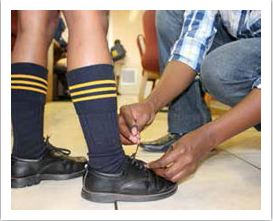 Did you know?
Did you know?
- It is now possible to grant a maintenance order on the first day of application. Apply for your child today.
- There is no limitation to the maintenance money. It is determined by the needs of the child and what parents can afford.
- You do not stop paying maintenance until the child is self-supporting. Do the right thing, pay child maintenance.
- Our maintenance investigators are able to trace the whereabouts of a defaulter and determine their financial position. Apply today.
- Our Maintenance Service Delivery system is simple, improved and more accessible. Go your nearest Magistrates Court to apply.
- Child Maintenance can be paid through Electronic Funds Transfer, Direct Payment and a Garnishee Order processes.
My child’s future is my priority. I pay maintenance.
The Department of Justice and Constitutional Development has identified as a priority service deliver improvements, which include the turnaround of the maintenance services.
Maintenance is administered in terms of the Maintenance Act No 99 of 1998.
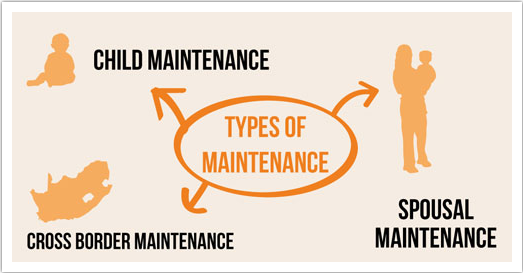 Maintenance is the obligation to provide another person, for example a minor, with housing, food, clothing, education and medical care, or with the means that are necessary for providing the person with these essentials. This legal duty to maintain is called ‘the duty to maintain’ or ‘the duty to support’.
Maintenance is the obligation to provide another person, for example a minor, with housing, food, clothing, education and medical care, or with the means that are necessary for providing the person with these essentials. This legal duty to maintain is called ‘the duty to maintain’ or ‘the duty to support’.
Children should not suffer: Apply for maintenance
Who can apply for maintenance?
- The parent/person who is in custody of the child/ ren may claim maintenance from the other parent who is responsible or liable to pay maintenance.
- Or in an instance where one spouse would like to apply for support from the other where applicable.
- Maintenance can be claimed from the biological grandparent if the parents cannot pay maintenance.
Documents needed to lodge a maintenance claim?
- Birth certificate of the child/ren
- Your identity document
- Divorce order and/or settlement if any
- Proof of your income and expenditure
- Name and surname of parent/ person responsible for the payment of maintenance money
- Physical/work address of the parent/person responsible for the payment of maintenance money if available,
- Copy of bank statement
- Proof of residence/affidavit.
Where can one apply for Maintenance?
You can lodge a complaint for maintenance in any local magistrate court where the applicant and/or the child resides.
What should I do when I get to the court?
- Ask to see the maintenance clerk.
- The maintenance clerk will then assist you in completing the forms.
- The Maintenance Clerk will refer your application to the Maintenance Officer for final assessment of your documents.
- After assessment the registration of application and reference number will be issued.
- The Maintenance Officer will issue a directive calling upon the parties to meet, for the purposes of conducting an investigation into the alleged complaint.
- The Maintenance Officer will then conduct an investigation into the alleged complaint, or conduct mediation with both parties present.
Mediation and granting of an order by consent
- The Maintenance Officer will conduct mediation with both parties to reach an agreement/settlement
- Where the parties reach an agreement/ settlement, the agreement will be made an order of the court. The Maintenance Officer may request both parties to sign a written consent and have that made an order of the court.
- The court then makes an order for payment of maintenance in accordance with the agreement between the two parties.
- Where parties do not reach an agreement, the matter is then referred to court for formal enquiry.
Payment method
The court may order the respondent to make payments by means of:
- An electronic funds transfer (EFT) to the beneficiaries bank account.
- A deduction of the maintenance money from the respondents’ salary, (Garnishee order)
- Direct deposit to the beneficiaries bank account
Procedure in cases where a respondent does not pay
If the respondent fails to pay within the specified times, you should report the matter to the Maintenance Offices. The court will follow one of the following two options:
- Civil Enforcement of Maintenance, through the Magistrate may order one of the following:
- emolument attachment: take the money from the defaulter’s salary
- attachment of debt and/or: take the money from the defaulters’ investment account
- execution of movable/immovable property: take the property from the defaulter, auction it and use the money to maintain the child
- Criminal Prosecution. A warrant of arrest can be issued if the respondent failed to comply with an order of court.
It's your duty as a parent to support your children: Maintenance investigators will find you
Court date
- On the day of the court appearance, an enquiry will be held to determine the needs of the applicant and the means available to provide maintenance from both parties.
- After consideration, the Magistrate will make a maintenance order indicating the amount to be paid.
What should I do if I notice that the parent receiving maintenance is not using the money to take care of the child?
- Go to the nearest court and report the alleged neglect.
- If the claim is proven, the court will assess the best possible solution in the interest of the child.
- If as a result you feel that custody of the child should be granted to you, you will need to report the matter to the children’s court.
Children’s needs
The Constitution of the country clearly indicates that every child has the right to, basic nutrition, shelter, basic health care services and social services. Some of the Children’s expenses can be listed as:
- Food
- Health Care
- School transport, stationery, lunch box/money, clothes
- Education/school/ preschool, kindergarten
- Extra-curricular activities, including sports, dance, music, art, summer camps
- Clothes
Maintenance FAQ
Who should pay maintenance?
It is a legal obligation of both the biological parents, grandparents or legal guardian of the child to pay maintenance.
Paying maintenance assists in proper living and upbringing of the child, and includes the provision of food, clothing, accommodation, medical care and education.
Can I claim maintenance from grandparents?
Yes maintenance can be claimed from the biological grandparent if the parents cannot pay maintenance.
Is maintenance a responsibility of biological parents only?
No, any person who is responsible to raise the child i.e legal guardian, adoptive parents and grandparents of the child, if the biological parents do not have means to pay maintenance.
Where are you suppose to lodge a complaint for maintenance?
In any local magistrate court where the applicant and/or the child resides.
How often should maintenance be paid?
The maintenance money should be paid every month on the dates agreed upon by both the parties and granted by the court.
How much money should be paid for maintenance?
The amount payable for maintenance will be determined by the needs of the child and the financial means of the parents.
At what age should you stop paying maintenance?
The maintenance should be paid until the child is self-supporting.
What happens if the child reaches the age of 18 and she/he is still not self- supporting?
The payment of maintenance will continue until the child is self-supporting. However, the maintenance payment should be deposited directly to the child’s banking account.
What happens when the person responsible for paying child maintenance dies?
The maintenance money should be paid out from the deceased estate for future maintenance.
Can I increase/decrease the maintenance amount after the order has been granted?
Yes, you can request decrease/increase of the amounts, especially if the financial circumstances have changed.
Can I claim maintenance while living together with the father/mother of the child?
Yes, you can claim maintenance if the other parent does not take responsibility of maintaining the child.
Is it compulsory to pay maintenance?
Yes, it is compulsory to pay maintenance.
What will happen to me if I unjustifiably default or stop paying maintenance?
An order for civil execution, warrant of execution in terms of section 27 of the maintenance act, attachment of emoluments in terms of section 28 and attachment of debts can be granted against you.
Complaints managers
If you have any complaints or comments regarding Maintenance contact your provincial complaints manager:
- Mpumalanga: Ngwenya Colleen 013 947 2363 / CNgwenya@justice.gov.za
- Limpopo: Ngwatla Kgomotsho 015 287 2179 / KNgwatla@justice.gov.za
- KwaZulu-Natal: Moodley Ryan 031 372 3165/ RyMoodley@justice.gov.za
- North West: Mashilo Ramoroka 018 397 7053 / MasRamoroka@justice.gov.za
- Gauteng: Sebetso Moeketsi 011 332 9109/ MSebetso@justice.gov.za
- Eastern Cape: Jama Lindoxolo 043 702 7019 / LJama@justice.gov.za
- Northern Cape: Morris Ivodia 053 839 0000 / IMorris@justice.gov.za
- Western Cape: Benjamin Gaironisa 021 462 5471 / GBenjamin@justice.gov.za
- Free State: Sephiri Mpho 051 407 1800 / MSephiri@justice.gov.za
- Or the National Complaints Manager:
Advocate Mulalo Netshisaulu at 012 315 1512 MNetshisaulu@justice.gov.za
Source: the doj & cd
New special permit centres opened
New special permit centres opened sadminThe Department of Home Affairs has opened four new Zimbabwe Special Permit Centres to allow Zimbabwean nationals living in South Africa to apply for special permits.
These centres are in Midrand (Gauteng), Cape Town, (Western Cape), Polokwane (Limpopo) and Durban (Kwazulu-Natal).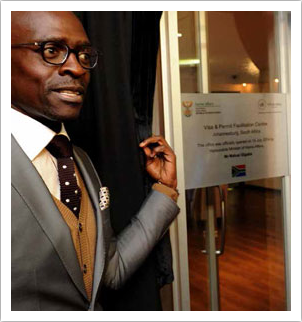
In 2010, government implemented the Zimbabwean Dispensation Project (ZDP), which was aimed at regulating the stay of undocumented Zimbabwean nationals living in South Africa.
At the time, Zimbabwean nationals were offered free temporary work and study permits, issued for up to four years, if they applied with a valid Zimbabwean passport and a letter from their employer in South Africa.
The permits issued under the ZDP are now expiring and Zimbabwean nationals will have to apply for the new Zimbabwe Special Permit (ZSP).
The ZSP allows Zimbabwean nationals to stay in the country until December 2017, after which will have to go back to Zimbabwe to apply for a relevant visa to stay in South Africa.
Minister of Home Affairs Malusi Gigaba says government is ready to process the multitudes of applicants who are likely to go the 10 processing centres across the country.
“The department is ready. We, along with our application processing partner VFS, have completed all the necessary preparations to process all prospective applications for the ZSP. All the 10 ZSP application centres have been secured by VFS.”
The remaining six centres are in George, Port Elizabeth, Kimberley, Bloemfontein, Nelspruit and Rustenburg.
He added that there was sufficient capacity to deal with the application process.
“Capacity has been set aside within our permitting section to be able to process the applications. Currently there are 120 dedicated staff members who will be dealing with ZSP adjudication.”
The application fee for the permit is R870. “In line with the ‘user pays’ principle, and like the vast majority of countries, we charge applicants for visas and permits for the cost of administering them.
“We believe this fee is reasonable, when compared with visas and permits of similar duration,” said Minister Gigaba.
For more information, call the Department of Home Affairs on 012 425 3000 or email: info.dhasa@vfshelpline.com
Organic farmer’s innovation pays off
Organic farmer’s innovation pays off sadminMavis Mathabatha, 54, has always been passionate about helping her community. In 2005 she started Sedikong sa Lerato (Circle of Love) a drop-in centre to look after orphans in Tooseng village, about 68 kilometres from Polokwane.
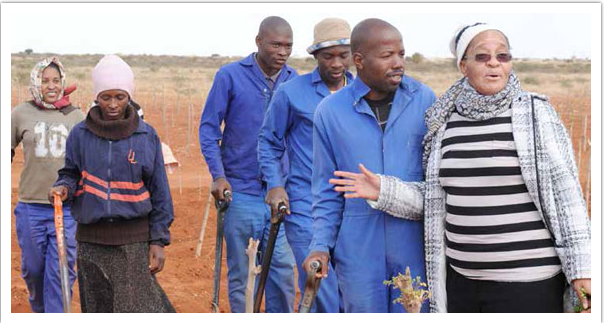 Her drop-in centre provides two meals daily to 247 children from the community.
Her drop-in centre provides two meals daily to 247 children from the community.
“I could not stand to see so many children orphaned and hungry. Every weekend I was attending a funeral of people in my community dying from AIDS related disease. I decided to start the centre to help.”
Children come in the morning before going to school and after school. The ages of children range between 1-18 years.
It was while running this initiative that Mathabatha had the idea to start Sedikong Organic Farming in 2006. Thanks to the support of the Department of Science and Technology (DST) her business continues to grow.
Mathabatha has a 15 hectare farm but only uses three hectares to farm the Moringa tree.
The Moringa leaves are known to be rich in protein, vitamin A, B, C and minerals. Sedikong Organic Farming produces about three tons of Moringa monthly and manufactures capsules, tea, and powder made from the leaves.
She sells her products to the community and also exports it to Mozambique, Swaziland and Botswana.
Mathabatha says she got the idea of farming Moringa while watching a television show about the benefits of the plant.
“I decided to do further research because I was very interested in Moringa. I managed to get seeds and started growing the tree. I also gave members of my community seeds to also grow the tree in their gardens.
“I did not think I would end up selling Moringa and leaving my teaching job.”
The land she uses was given to her by the chief and she started her business with just one hectare.
“By 2010 business was booming and we started the process of applying for funding from government and the private sector,” says Mathabatha, who was a biology and Afrikaans teacher for 17 years.
In 2011, Mathabatha received R1,2 million from a private company, which she used to prepare the soil to make it suitable for farming. The following year, the DST helped her with an irrigation system for her business.
 Last year DST also gave her R1,5 million to help grow her business.
Last year DST also gave her R1,5 million to help grow her business.
“I have received a lot of assistance from government in terms of starting my business. I have also travelled with the Department of Trade and Industry to countries such as Canada, Holland and Germany to market my business.”
She adds that because of the travels and exposure, she has received a letter from a company in Germany requesting her to supply 500 tons of Moringa yearly.
“What makes my Moringa so popular is that we don’t use any fertilizer to grow the tree. For pest control we take the same Moringa leaves and mix them with pepper to use as a pesticide.”
She has staff compliment of 30 people who work on the farm and at the drop-in centre. During harvest season she employs more people.
In 2013, she was crowned Limpopo’s Female Farmer of the Year and received R60 000. In 2010, the Department of Agriculture, Fisheries, and Forestry named her the leading commercial farmer in South Africa and she walked away with R350 000.
Her plans for the future include building an agro-processing plant with proper machinery to produce 10 000 Moringa capsules per minute and 25 000 tea bags per minute.
“My goal for my business is to supply Moringa to the Department of Health as a supplement to patients because of its nutritional value.
“When I went into business I wanted an innovative idea that would put me on the map in South Africa. This is the advice I give to anyone who wants to start a business. Do something different and research your product and the market.”
Hlupheka Chabalala, Director of IK-based Technology Innovation at DST, said it was high time that science and technology played its role in rural communities.
“Other communities could learn from Mathabatha’s creativity and initiate programmes,” he said.
|
For more information, contact the DTI Customer Contact Centre: 0861 843 384 |
Patients flock to the new Natalspruit Hospital
Patients flock to the new Natalspruit Hospital sadminA new hospital, launched two months ago, has brought much-needed health care services closer to Vosloorus and neighbouring communities.
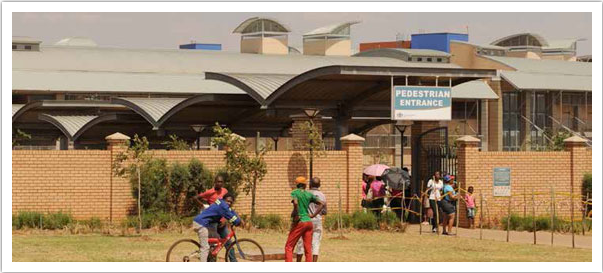 The hospital moved from its old building in Katlehong to the new one in Vosloorus, and it came with a certain number of patients.
The hospital moved from its old building in Katlehong to the new one in Vosloorus, and it came with a certain number of patients.
“The number of patients is increasing drastically because the hospital is even closer to patients who used to go to Bertha Gxowa district hospital in Germiston,” said Acting CEO Dr Patricia Afrika.
At the moment, the state-of-the-art hospital is taking referrals from clinics, community healthcare centres and district hospitals, serving Thokoza, Vosloorus, Katlehong, Magugala Heights, Zonkizikwe, Phola Park, Palm Ridge, Eden Park, Germiston and Leondale.
The R1,7 billion hospital took eight years to build, is furnished with 821 beds and spans an area of over 7 000m2. The building of the hospital created 4 950 jobs, and 16 local contractors were employed in different trades.
It offers services such as family medicine, 24-hour casualty, medico-legal, obstetrics and gynaecological, mortuary, radiography, and an eye nose and throat clinic, among others.
The majority of the equipment found in the hospital is new, and its costs sums up to R164 million.
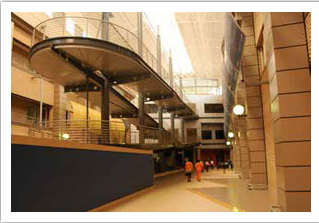 Nako Semousu, 48, of Palm Ridge told Vuk’uzenzele that he was born in the old hospital in Katlehong and has always received health services from there, but he now feels like he is under private health care at the new facilities.
Nako Semousu, 48, of Palm Ridge told Vuk’uzenzele that he was born in the old hospital in Katlehong and has always received health services from there, but he now feels like he is under private health care at the new facilities.
Semousu, who had been admitted at the hospital for almost a month at the time, said he was happy with the care given to him.
“I am happy about the services offered to me here. The only problem I have is that we [patients] don’t have enough blankets and hospital gowns,” he said.
“In terms of getting my treatment, the hospital is number one. We also eat well. The nurses are very helpful. I don’t see any other problems…” he added.
Funeka James, 53, who was also admitted at the hospital, said she had been struggling to get proper health care back in her home town Qunu in the Eastern Cape.
“I came to Johannesburg under very difficult circumstances. I came here very ill. My children told me that there were hospitals in the city where I could receive proper health care,” said James, who had been lying on the hospital bed for four days prior to the interview.
 “I am well looked after here. I came in very weak but now I feel better. My stomach was swollen, but now it is flattening again,” she added.
“I am well looked after here. I came in very weak but now I feel better. My stomach was swollen, but now it is flattening again,” she added.
Health Minister Dr Aaron Motsoaledi said the equipment found in Natalspruit Hospital was previously found in private hospitals only.
The hospital also has six operating theatres, a mammography unit -- which will help in speeding up the diagnosis of breast cancer, among others.
Minister Motsoaledi said he would make sure that health infrastructure projects were complete within three years.
“The next hospital that we are going to build will be Soshanguve Hospital in Pretoria, and we are going to take 36 months to build it… nothing more,” said the Minister.
The head of the emergency Emergency department at the hospital, Doctor Lindy Falscher, said among the world-class equipment found in the hospital was the Lodox [X-ray] machine and the CT scanner, which help save lives of trauma patients.
“The Lodox machine shows every fractured bone in the patient’s body within 30 seconds, unlike the ordinary X-ray, which sometimes required patients to go through multiple series screening which would last for about 10 minutes,” said Falscher.
“Previously, we had patients dying in the X-ray department,” she said.
She said the CT scanner, which is used in the Radiography department, looks into other structures of the body beyond the bones.
Daisy Chauke, Head of radiography, added that the CT scanner was a 64 multi-slice, whereas the old scanner from the old hospital only showed 16 slices and took about 10 minutes per slice.
“We use it to have a finer detail of which the doctor will be able to diagnose properly,” Chauke said.
The CT scanner also shows bleeding and abnormalities in the patient’s body.
She added that the radiography department had expanded and will be employing more staff.
“At the moment we only have 16 radiographers, excluding myself,” she said.
The hospital also has a Patient Archive Communication (PAC) system which it never had in the old Natalspruit, which keeps records of patients information and images for easy access by doctors.
The community of Vosloorus and surrounding areas now has access to a world-class health facility.
Police have crime under control
Police have crime under control sadminWhile challenges with certain categories of crime remain, South Africa’s police have a firm handle on crime, says National Police Commissioner General Riah Phiyega.
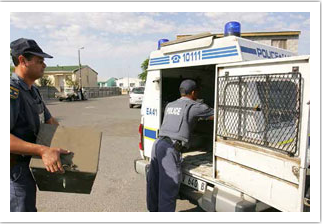
“Police are in control. The fact that we arrested 1,7 million people in the past year alone says a lot. Policing is a highly controlled environment with clear standing orders.
“Yes, mistakes are made but they tend to be the ones that are flagged by the media,” said Phiyega following the release of 2013/14 crime statistics last month.
The statistics, which cover the period from 1 April 2013 to 31 March 2014, showed that murder is up by 5 per cent, with an additional 809 murders.
The Western Cape showed the highest increase in murders by 12,8 per cent, from 2 580 in 2012/13 to 2 909 in 2013/14, followed by Gauteng by 11,2 per cent, from 2 997 in 2012/13 to 3 333 in 2013/14.
The third highest province in cases of murder was the Northern Cape with a record of 6,3 per cent, from 412 in 2012/13 to 438 in 2013/14.
The statistics also showed that sexual offences have decreased by 5,6 per cent from 2012/13 to 2013/14.
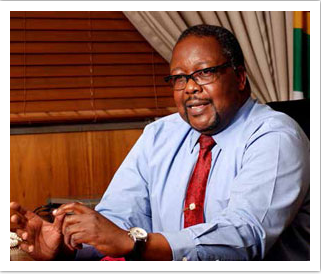
The decrease was recorded in all nine provinces, with the North West leading with a 12,2 per cent decrease, from 5 521 in 2012/13 to 4 850 in 2013/14.
Gauteng showed a decrease of 10,3 per cent from 12 288 in 2012/13 to 11 021 in 2013/14, followed by Free State with 8,3 per cent from 5 252 in 2012/13 to 4 814 in 2013/14.
In addition, home robbery was up 7,4 per cent, with 1 334 more cases than the previous year.Business robbery was up by 13,7 per cent with 2 238 more attacks, and car hijacking up by 12,3 per cent with 1 231 more attacks than the previous year.

Business robbery was up by 13,7 per cent with 2 238 more attacks, and car hijacking up by 12,3 per cent with 1 231 more attacks than the previous year.
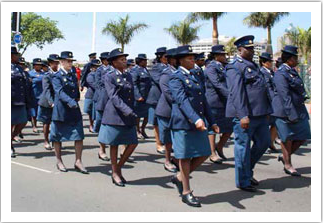
Theft of motor vehicles and motorcycles in KwaZulu-Natal decreased by 10,9 per cent, from 9 788 in 2012/13 as compared to 8 723 in 2013/14.
Police Minister Nkosinathi Nhleko said crime statistics were all about numbers and how research was conducted.
“The problem with how South Africans deal with crime statistics is that the debate has degenerated to being about numbers and research methodology. Energy needs to be diverted towards what is it that needs to be done to improve levels of safety as a country.
“This is the major point that needs to be looked into. The important thing is can a ordinary South African walk down the street any time of the day and still feel safe?”
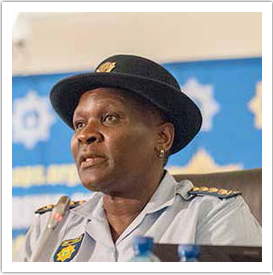 He said the crime statistics were audited by the Auditor-General, working in conjunction with Statistics South Africa.
He said the crime statistics were audited by the Auditor-General, working in conjunction with Statistics South Africa.
This, Minister Nhleko said, was done to address concerns about the reliability of the statistics, which were raised last year.
He said when levels of poverty and unemployment were high, crime statistics were bound to rise.
He also attributed this to the high social unrest as well as drug abuse in communities.
“The prevalence of drug and alcohol abuse in South Africa is very concerning. In most areas of our communities, we find more taverns than schools and churches combined,” he said, adding that a broader solution needs to be found.
"There is a need to regenerate the morality in our society, which will help us in the fight against crime."

Currently, South Africa has one police officer for every 346 South Africans.
"All of us need to make a contribution in reducing crime and fighting corruption in our communities," said Minister Nhleko.
He added that sexual offences still needed to be tackled by all responsible citizens of South Africa.
“The decrease in sexual offences crime does not suggest that no incidents of rape were occurring, they still do exist.”
He added that contact crimes were prevalent in society and there were high levels of violence and aggression, which was a serious concern.
He said in line with the National Development Plan, the focus would be on strengthening the criminal justice system, professionalising the police as well as building safety.
Written by Noluthando Mkhize and SA News
R1bn to build, improve township economies
R1bn to build, improve township economies sadminThe Gauteng government will invest more than R1 billion to build and improve infrastructure for township economies over the next five years.
“We want to make the township economy a critical player in Gauteng’s economy. We want 30 per cent of the Gauteng economy to be composed of township enterprises,” the province’s Premier David Makhura said.
He added that government wanted to double the size of the Gauteng economy and grow it to R2 trillion over the next 15 years.
“The revitalisation of the township economies is one of the interventions to transform, modernise and reindustrialise our economy.”
Speaking at a Summit on Township Economic Revitalisation at Orlando Stadium in Soweto, he said government was responding to the needs of the township entrepreneurs.
The purpose of the summit was to afford local entrepreneurs, SMMEs and cooperatives an opportunity to contribute towards the Township Economic Revitalisation Strategy.
Premier Makhura said the Gauteng Provincial Government was looking at a number of interventions, which would help grow the township economies.
“We want to ensure that there is an appropriate legal and regulatory framework… we need to review some of the laws that don’t promote the growth of SMMEs and township entrepreneurs.
“We want to promote productive activities in the townships, we must produce goods and services in the townships.”
Other interventions included fast tracking skills development, helping entrepreneurs with financing and investing in township economies.
Premier Makhura said government wanted to help township entrepreneurs with access to the markets and procurement.
Over the past three months the Premier had consultations and participative engagements with townships entrepreneurs across the province.
“We visited more than 65 townships in Gauteng and gained insider perspective and first-hand information from more than 50 000 township entrepreneurs about their plans and aspirations,” Premier Makhura said.
Some of the challenges that were facing township entrepreneurs included the presence of shopping malls, a procurement system that does not support township economies and heavy handedness by metro police who were criminalising informal traders.
“The government has pledged an amount of R60 million in the current financial year to invest in building proper infrastructure for township entrepreneurs to be able to do their business in better conditions,” Premier Makhura said.
Deputy President Cyril Ramaphosa told township entrepreneurs that innovation drove businesses.
“Innovation is what drives economies. I want you to sit back and think what you can do that is innovative. Winners in any business are those who are innovative, who think out of the box,” he said.
Deputy President Ramaphosa encouraged entrepreneurs to improve their skills so they be better at reading balance sheets, understand income statements and sharpen marketing skills to access markets.
“The township economies must be used a launching pad to launch into the broader economy of our country.
You must manufacture goods in the township and sell them in Sandton … you must venture out of the province, venture out of the country. “We should not aim just to remain here; the township economy is our launch pad. We must launch ourselves like a rocket,” he said.
The Deputy President also called on big business to support township economies.
Recycling business empowers the community
Recycling business empowers the community sadminWhen Matseke Maserumule, 28, left the corporate world in 2012 to follow her passion for caring for the environment, she had no idea that she would end up running a leading recycling business.
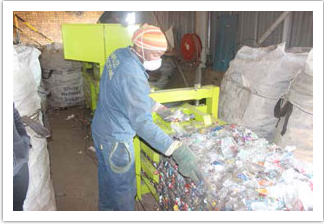 In 2010, Maserumule registered Silver Ink Environmental, Solutions and Projects CC but the company only started operating in January 2013.
In 2010, Maserumule registered Silver Ink Environmental, Solutions and Projects CC but the company only started operating in January 2013.
In 2012, she applied for a grant from the National Youth Development Agency (NYDA). The application, which took about a year to process, was successful and the company was granted R10 000.
“I used that money to buy a scale and a printing machine,” said Maserumule.
The company, situated north of Middelburg, Mpumalanga, collects cans, cardboard, paper, plastic, and glass from nearby dumping sites, industrial areas, residential areas shops and schools.
Workers collect these items and take them to the buyback centre, where it gets sorted according to texture and colour.
“After sorting, baling takes place and bundles are sold to recycling centres. Silver Ink also buys waste from the community, for which it pays per kilogram,” explains Maserumule.
Maserumule’s business also received help from the NYDA’s Entrepreneurship Development Programme (EDP) to market her business.
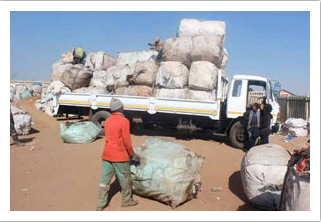 “The business was operating with one scale and I was also using my bakkie and trailer to collect from surrounding communities and industry. This was time consuming and also delayed production,” she said.
“The business was operating with one scale and I was also using my bakkie and trailer to collect from surrounding communities and industry. This was time consuming and also delayed production,” she said.
Things improved in 2013 when Nampak sponsored the company with a compressing machine. She then bought two trucks and other office equipment.
In August the same year, she won the Pettrepreneurs Woman of the Year award, which was organised by recycling company PETCO. The prize was a compressing machine.
Silver Ink currently employs 25 people on a six month renewable contract, based on performance.
Rikeda Mudau’s life has changed since she started working at Silver Ink.
She says thanks to her job, she now earns enough to care for herself, husband and two children.
Maserumule encouraged others to care for the environment and participate in programmes such as the Coca-Cola Shanduka Beverages (CCSB) Recycling Initiative.
The initiative is aimed at educating learners, CCSB customers and communities about the importance and benefits of recycling through a competition at selected schools and customer stores. It is a joint venture between CCSB, the Steve Tshwete Municipality, PETCO, the Mpumalanga Department of Education and Silver Ink.
“My dream is for my business to be known globally and for the business to expand to other areas,” says Maserumule.
She is now in the process of procuring 3 000 square meters of land to make her dream a reality.
For more information on the NYDA call 0800 52 52 52.
SA to meet development goals
SA to meet development goals sadminThe South African government will continue to work towards meeting the United Nations Millennium Development Goals (MDGs) whose 2015 deadline is fast approaching.
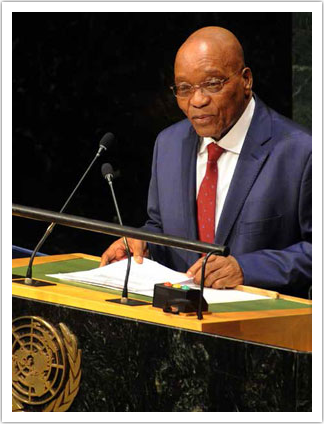 The MDGs are eight goals that were signed by United Nations member countries in 2000 and in them countries committed to work towards halving extreme poverty rates and halting the spread of HIV/AIDS. They also pledged to provide universal primary education by the target date of September 2015. The MDGs have been seen as the most successful global antipoverty push in history.
The MDGs are eight goals that were signed by United Nations member countries in 2000 and in them countries committed to work towards halving extreme poverty rates and halting the spread of HIV/AIDS. They also pledged to provide universal primary education by the target date of September 2015. The MDGs have been seen as the most successful global antipoverty push in history.
In September the United Nations General Assembly in New York discussed the future of these goals and the possibility of replacing them with Sustainable Development Goals (SDGs) which countries will now sign-off. The SDGs will have 17 goals and 169 targets.
The MDGs have just eight goals and 21 targets. Despite the progress that the continent has made, reports continued to show that Africa is lagging behind in terms of the attainment of some of the goals.
The UN says through MDGs, the world has managed to lift nearly one billion people out of extreme poverty. The MDGs have also been hailed for increasing universal primary education, reducing maternal and infant mortality by nearly 50 percent, and increased access to clean drinking water.
Africa lagging behind
But with less than 300 days before deadline, it’s not looking good for the majority of African countries that have signed up for these goals. While political instability, which meant that development had to take the backseat, has been blamed for failure to meet the MDGs by some countries, analysts say the global economic crisis had also slowed down growth in some countries. This meant that budgets had to be reduced and some of these goals could not be met.
There were countries, like Somalia, Malawi and many in the western Sahara that were affected by years of drought, floods, lack of foreign investment and outbreak of diseases. These countries will not deliver the commitments of the MDGs.
For its part, however, South Africa has done well and already met some of the goals. Among the areas the country has achieved includes progress in the eradication of extreme poverty and hunger through its social security system in the form of grants and work opportunities linked to the Expanded Public Works Programme.
In education, South Africa introduced no-fee schools and universal primary education and compulsory schooling for the age group seven –15 years. South Africa seems to be on the way to meet MDG 6 by recording major successes in the fight against HIV/Aids.
“South Africa has recorded impressive progress through the expansion of health infrastructure and improved access to health services for all South Africans,” President Jacob Zuma said during the General Assembly.
“On the reduction of child mortality, MDG 4, and the improvement of maternal health, MDG 5, significant progress has been recorded, but more work remains. In fact, more work remains worldwide to fully achieve these goals, especially in the developing world,” he said.
What happens after MDGs
President Zuma emphasised that Africa had to confront those underlying root causes that continued to make it impossible for its people to have a better life.
United Nations Secretary General Ban Ki Moon said the new agenda which follow the MDGs should promote sustained and inclusive economic growth, safeguard the future of the planet, and lead to the achievement of sustainable development.
President Zuma said that agenda “will provide a frame of reference for our collective agreement on what has to be done”.
“We reiterate that developed countries should be reliable partners and meet their commitment to development goals, such as contributing 0,7% of their gross national income towards Official Development Assistance.”
Climate change
For the first time in the history of the UN, the General Assembly in New York this year also set aside a day to discuss climate change and its devastating impacts on the environment. Climate change which is the result of global warming is a serious problem for planet earth. Its threats include severe changes to weather which in turn pose serious challenges to human health and food security.
At the climate summit the UN asked world leaders to make bold announcements and actions to that will reduce carbon emissions, strengthen climate resilience, and mobilize political will for a meaningful legal agreement in 2015.
Environmental Affairs Minister Edna Molewa, who represented South Africa in the meeting said South Africa was doing its bit to address climate change with responses ranging from mitigation, adaptation as well as legislation that promotes green economy.
“We have really done well as a country. We have done an easement report of does South Africa stand with its greenhouse gases… we have also moved to quite a few things including what we call the desired emissions reduction outcomes.
“That strategy helps us to begin to allocate per sector the carbon reduction capacity and what every sector should do to reduce carbon emissions,” Minister Molewa said citing transport and the energy departments as examples of sectors that have started to reduce emissions.
South Africa is also a signatory to the United Nations Framework Convention on Climate Change, an environmental treaty negotiated by the UN in 1992.
SA troops to maintain peace in Africa
SA troops to maintain peace in Africa Estelle GreeffThe South African National Defence Force will deploy more than 1 500 troops to the African Capacity for Immediate Response to Crises (ACIRC), which will help ensure stability on the continent.
 The troops who will be sent to ACIRC have been undergoing intensive training to prepare themselves for any situation they may face on the African continent.
The troops who will be sent to ACIRC have been undergoing intensive training to prepare themselves for any situation they may face on the African continent.
ACIRC is a standby force that will quickly respond to crises and conflicts on the continent. Member states of the African Union (AU) will contribute troops to ACIRC on a voluntary basis.
Chief of the SA Army Lieutenant-General Vusi Masondo said ACIRC would play an important role in ensuring safety and security in the continent.
“Let me warn the enemies of peace across the African continent that the legitimate armed forces on the African continent will act as a collective to quell any from of instability that threatens our people,” he said.
Lt-Gen Masondo added that the SA Army had made good progress in readying the country’s soldiers who would become part of ACIRC.
“…We have been successful in bringing to fruition the key objectives set to facilitate the formation of the ACIRIC and put capable boots SA troops to maintain peace in Africa on the ground to take forward the AU’s goal to swiftly maintain an efficient and lasting continental peace and security.
“We have made strides in terms of preparing and employing capable fit-for-purpose soldiers to respond to Africa’s demanding geo-political situation.”
As part of the country’s contribution to ACIRC, the SA Army will send a motorised infantry battalion, a composite armoured car squadron, a light artillery battery, an air mobile anti-aircraft battery, a composite signal squadron and 1 Tactical Intelligence Regiment.
The South African Air Force will contribute a mobile air operations team, the services of two Gripen attack aircrafts, two utility helicopters and supporting staff.
The SA Navy will deploy a boat squadron and marines.
“As Africans, through the creation of ACIRC, we surely have turned the corner when it comes to owning up and addressing our challenges of lack of peace, rife instability and unmitigated weak states that allow criminals and war-mongers to exploit our people and perpetuate underdevelopment.
“With ACIRC we say enough is enough and never again shall Africa descend into chaos while we know what needs to be done,” he said.
He added that the force had been well trained was ready for its task.
SA's judicial system meets ciitzens' needs
SA's judicial system meets ciitzens' needs Estelle GreeffThe independence of the courts and the rule of law can only prosper where there is a clear separation of powers.
 This is according to Minister of Justice and Correctional Services Michael Masutha, who recently announced that staff from the Department of Justice would be transferred to the office of Chief Justice Mogoeng Mogoeng.
This is according to Minister of Justice and Correctional Services Michael Masutha, who recently announced that staff from the Department of Justice would be transferred to the office of Chief Justice Mogoeng Mogoeng.
A total of 1 486 staff, who perform administrative duties supporting judicial functions in superior courts such as the Constitutional Court, Supreme Court of Appeal and High Court, now belong to the Office of the Chief Justice as of October this year.
“The Department and the Office of the Chief Justice were working tirelessly to ensure that the transition happens without glitches,” said Minister Masutha.
The Office of the Chief Justice was given a provisional budget of R1,4 million for the year with plans in place for it to receive its own budget.
Minister Masutha added that lower courts such as Magistrate’s and Sexual Offences Courts would remain in his department.
He added that this was a step in the right direction in the quest for a transformed and accessible judicial system as specified in the National Development Plan (NDP).
South Africa’s judicial system
The Constitution is the supreme law of the country and binds all legislative, executive and judicial organs of state at all levels of government.
The judiciary is separated into different courts, each with different functions.
Constitutional Court
The Constitutional Court is the highest court in South Africa. It consists of 11 judges who protect the Constitution and human rights.
The court deals with cases sent to it by the High Court and these cases have to do with constitutional issues. Normal appeal matters are dealt with at the Supreme Court of Appeal.
Supreme Court of Appeal
The Supreme Court of Appeal (SCA) is based in Bloemfontein, in the Free State. It only deals with cases sent to it from the High Court.
Three to five judges listen and decide on all cases of the SCA. The final decision of the SCA is the one supported by most of the judges listening to the case.
High Court
High Courts usually only hear civil matters involving more than R100 000, and serious criminal cases.
They also hear any appeals or reviews from lower courts Magistrates’ courts, which fall in their geographical jurisdiction.
There are 14 provincial divisions of the High Court in South Africa.
Magistrates' Court
Magistrates’ Courts are the lower courts, which deal with the less serious criminal and civil cases. They are divided into Regional Courts and District Courts. In criminal matters a district court has jurisdiction over all offences except treason, murder and rape, and a regional court has jurisdiction over all offences except treason.
Small Claims Courts
Small Claims Courts have jurisdiction to hear any civil matter involving amounts less than R 12 000. They exist to make the court process quicker and cheaper. There is no magistrate or judge at the Small Claims Court, but the presiding officer is a commissioner who is usually a practicing advocate or an attorney who acts as a commissioner.
The commissioner listens to both sides and asks all the questions. You cannot use a lawyer in the Small Claims Court, but you can get advice from a paralegal or a lawyer to prepare
for your case.
No appeal may be filed against the judgment or order of the Small Claims Courts.
Equality Courts
Equality Courts have been set up to help those who believe they have suffered unfair discrimination, hate speech or harassment.
Anyone can take a case to the Equality Court, even if you are not directly involved in what happened.
Sexual Offences Court
Special Sexual Offences Courts have been set up across the country. They are built in such a way that children and victims get the necessary care, respect and support at the court.
There is a waiting room to make sure that the victim of a sexual offence does not come in contact with the person accused.
Further information visit: www.justice.gov.za
Serving communities better
Serving communities better sadminCommunities will now experience an improved local government and receive satisfactory and good quality service.
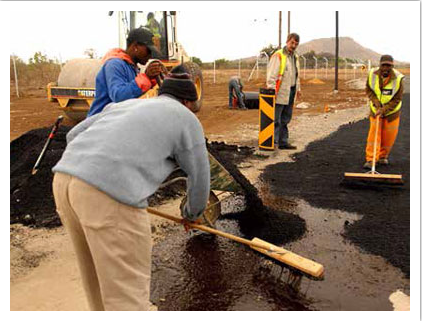 Cooperative Governance and Traditional Affairs Minister Pravin Gordhan, who spoke at the recent at the Presidential Local Government Summit, said municipalities would spend public funds carefully, hire competent staff, ensure transparency and be accountable to the people it serve.
Cooperative Governance and Traditional Affairs Minister Pravin Gordhan, who spoke at the recent at the Presidential Local Government Summit, said municipalities would spend public funds carefully, hire competent staff, ensure transparency and be accountable to the people it serve.
He said robots, leaking taps and streetlights would be fixed; grass would be cut, and potholes would be patched.
“Complaints are that we don’t take people seriously and often take more time to respond. Sometimes we take three days to respond to something that could take one day. We need to change that and respond to problems timeously,” said Minister Gordhan.
He added that all municipalities should work harder, serve communities differently and respond to their concerns within a reasonable time.
Minister Gordhan said for local government to work effectively and make a positive impact on the lives of residents, political leadership and administrators should play an important role.
“All of us are accountable to change people’s lives and create better prospects for the economy.”
The summit committed to going back to basics and doing the simple things correctly.
To help local government to prosper, national government would support, monitor, intervene and ensure that there is adherence to norms and standards.
Delegates at the summit included the leadership of local government across the country who committed to the following:
- Implement the Back to Basics programme.
- Create conditions for decent living by consistently delivering municipal services to the right quality and standard. This includes planning and delivery of infrastructure and amenities.
- Ensure good governance and effective administration, cut wastage, spend public funds prudently, hire competent staff, and ensure transparency and accountability. Further ensure that corruption is prevented and rooted out at all levels.
- Ensure sound financial management and accounting by prudently managing resources so as to sustainably deliver services and bring development to communities.
- Build and maintain sound institutional and administrative capabilities managed by dedicated and skilled personnel at all levels.
- Put people and their concerns first and ensure constant contact with communities through effective public participation platforms.
- Ensure quarterly performance monitoring and reporting on the work of municipalities as directed by the Back to Basics approach.
- Improve the political management of municipalities and be responsive to the needs and aspirations of local communities.
Minister Gordhan said his department would embrace the Back to Basics approach in addressing the challenges facing local government and committed to strengthen local government in order to move our country forward.
| For more information, call the Batho Pele call centre: 0860 428 392 |
Transnet changes lives and gives hope
Transnet changes lives and gives hope sadminThe Transnet Foundation Orphaned Youth Education Development Programme, one of the services offered by the Transnet Foundation, is giving hope to vulnerable and orphaned high school children.
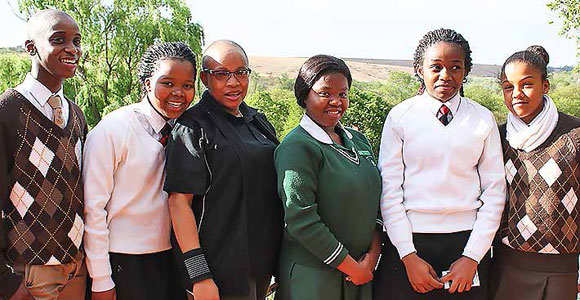 The programme currently helps 10 Grade 11 learners, who attend fiveday life skills workshops twice a year, and 20 Grade 8 learners, who attend three life skills camps in a year.
The programme currently helps 10 Grade 11 learners, who attend fiveday life skills workshops twice a year, and 20 Grade 8 learners, who attend three life skills camps in a year.
Each programme is suited to the needs of the young people. Topics covered range from dealing with one’s past to the use of social media and financial management.
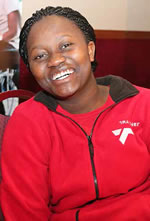 “Camps allow kids to experience family life and support and care for one another. They are taught how to use the skills learned at the camp, constructively,” said Theresa Moila, the Senior Manager for Education at Transnet.
“Camps allow kids to experience family life and support and care for one another. They are taught how to use the skills learned at the camp, constructively,” said Theresa Moila, the Senior Manager for Education at Transnet.
Learners are selected from different schools by Transnet and go through an application process that includes an interview with the Transnet board.
The learners are those who are orphaned, top performers and have good testimonials from teachers or community leaders.
These children are also adopted by families who take care of their day-to-day needs.
“We have what we call Transnet parents, who adopt a kid and looks after them as their own,” added Moila.
 Once they complete high school, Transnet grants them bursaries to study further and after completing their studies, they have the option to work at Transnet.
Once they complete high school, Transnet grants them bursaries to study further and after completing their studies, they have the option to work at Transnet.
Happiness Zulu, a Grade 8 learner, who is part of the programme, enjoys the camps.
“I am taught a lot of skills that I can use in my life and also Transnet is like my family, I enjoy being around the other kids,” she said.
Tswelopele Molema, a Grade 11 learner, said the camp helped him to become a confident person.
“The camp has allowed me to grow as an individual and has taught me how to overcome challenges in my life.”
Happy Ndime, who is also part of the programme, said her experience has been exciting.
 “I’m now at a school with a proper education system and my future looks very bright. The life skills camps are very eye opening and they prepare us for the challenges in the real world. Above everything, our family bond is very special. We stand up for each other and we don’t try to be better than one another, instead we encourage each other to do the best we can be.”
“I’m now at a school with a proper education system and my future looks very bright. The life skills camps are very eye opening and they prepare us for the challenges in the real world. Above everything, our family bond is very special. We stand up for each other and we don’t try to be better than one another, instead we encourage each other to do the best we can be.”
Sibusiso Ngomane, Senior Manager of Communications and Special Projects at Transnet Foundation, said the camps offered the youngsters the chance to develop their talents.
“At the Foundation, we realise that talent is not the only factor that determines whether our youth achieve success, but the opportunities to develop their talent and to be discovered also heavily weigh in. For without these opportunities, the journey from grassroots to glory is unlikely to happen. This is the case for many talented young people in the rural and underprivileged areas.
“We are very proud of the impact the programme has had, primarily with the knowledge that investment in youth carries far much significance as they are the future of the country,” he said.
